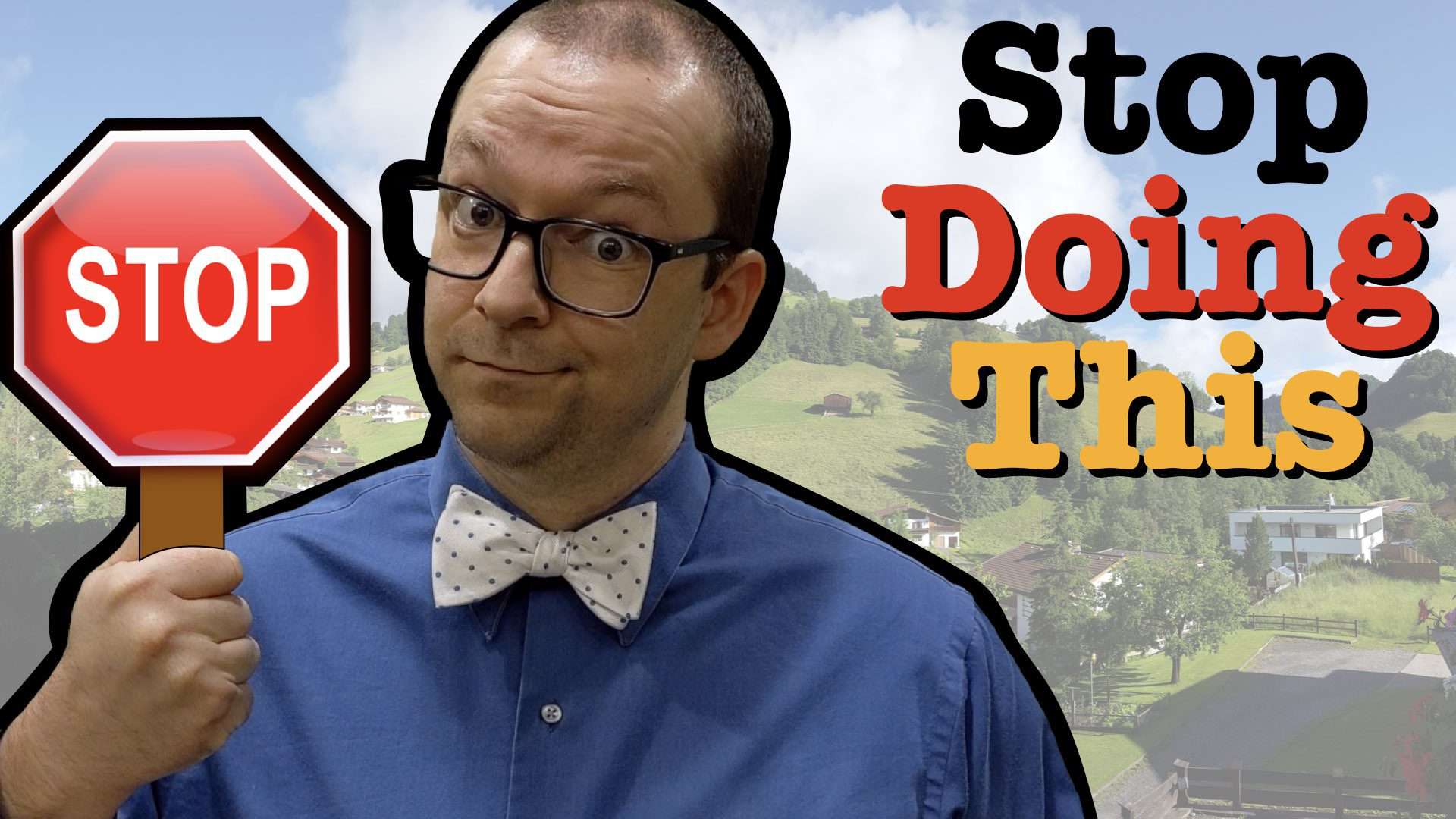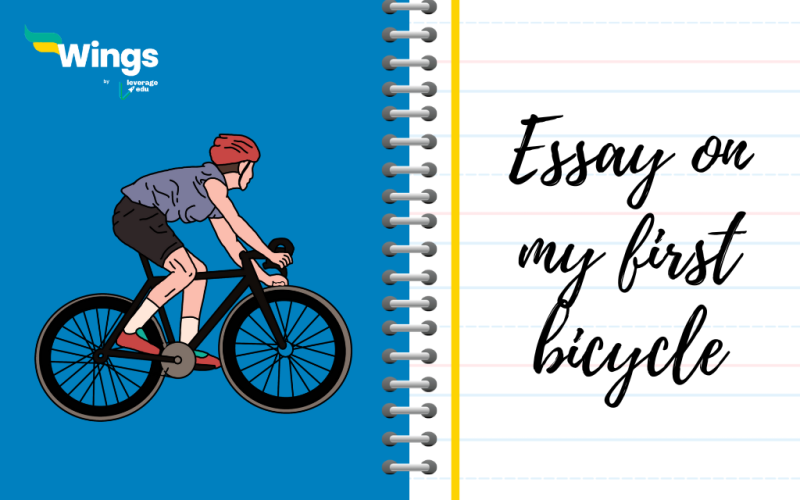

50 Useful German Essay Words and Phrases
by fredo21
January 9, 2019
2 Comments
Essay-writing is in itself already a difficult endeavor. Now writing an essay in a foreign language like German ---that’s on a different plane of difficulty.
To make it easier for you, here in this article, we’ve compiled the most useful German essay phrases. Feel free to use these to add a dash of pizzazz into your essays. It will add just the right amount of flourish into your writing---enough to impress whoever comes across your work!

You can also download these phrases in PDF format by clicking the button below.

Now here’s your list!
erstens WORDS AND EXPRESSIONS NOW! Beginner Intermediate Advanced Sign ME Up! | firstly |
zweitens | secondly |
drittens | thirdly |
Einleitend muss man sagen... | To begin with, one has to say... |
Man muss ... in Betracht ziehen | One needs to take ... into consideration |
Ein wichtiger Aspekt von X ist ... | An important aspect of X is ... |
Man muss erwähnen, dass... | One must mention that ... |
im Vergleich zu | in comparison to... |
im Gegensatz zu | in contrast to... |
auf der einen Seite | on the one hand |
auf der anderen Seite | on the other hand |
gleichzeitig | at the same time |
angeblich | supposedly |
vermutlich | presumably |
in der Tat | in fact |
tatsächlich | indeed |
eigentlich | really; actually |
im Allgemeinen | in general |
möglicherweise | possibly |
eventuell | possibly |
im Durchschnitt | on average |
auβerdem | besides; moreover |
jedoch | however |
trotzdem | nevertheless |
in jedem Fall / jedenfalls | in any case |
das Wichtigste ist | the most important thing is |
ohne Zweifel | without a doubt |
zweifellos | doubtless |
verständlicherweise | understandably |
grundsätzlich | fundamentally |
anscheinend | apparently |
äuβerst | extremely |
heutzutage | nowadays |
infolgedessen | as a result of this |
in diesem Fall | in this case |
verhältnismäβig | relatively |
genauso wichtig wie dies ist ..... | just as important as this is ... |
unglaublich | unbelievably |
aller Wahrscheinlichkeit nach | in all probability |
im Grunde | basically; fundamentally |
in Wirklichkeit | in reality |
Dieses Beispiel illustriert ... | this example illustrates |
Diese Szene zeigt, dass... | this scene shows that... |
Dieses Ereignis macht klar, dass ... | this event makes it clear that |
wahrscheinlich | likely |
offensichtlich | obviously |
sonst | otherwise |
wie oben erwähnt | as mentioned above |
Es scheint, dass ... | It seems that |
kurz gesagt | in short |
Zusammenfassend kann man sagen | In conclusion one can say .. |
What other German vocabulary list would you like to see featured here? Please feel free to leave a message in the comment section and we’ll try our best to accommodate your requests soon!
Once again, you can download your copy of the PDF by subscribing using the button below!
For an easier way to learn German vocabulary, check out German short stories for beginners!

A FUN AND EFFECTIVE WAY TO LEARN GERMAN
- 10 entertaining short stories about everyday themes
- Practice reading and listening with 90+ minutes of audio
- Learn 1,000+ new German vocabulary effortlessly!
About the author
Leave a Reply
Your email address will not be published. Required fields are marked
Thank you for the good writeup. It in fact was a amusement account it. Look advanced to far added agreeable from you! By the way, how can we communicate?
Asking questions are genuinely good thing if you are not understanding anything completely, except this piece of writing provides nice understanding yet.
You might also like
Learning Method
Sentence Structure and Word Order in German
German declension: the four grammatical cases in detail, prepositions with dative, accusative, and mixed, learn all about german two-way prepositions: what they are and how to use them, just one more step and you'll get access to the following:.
- The German Learning Package: 100-Day German Vocabulary and Phrases Pack.
Sign Up Below ... and Get Instant Access to the Freebie

German Essay Phrases: 24 Useful Expressions to Write an Essay in German
As we often think in English first, translating our ideas into useful German phrases can be tricky.
This handy blog post includes 24 essential German essay phrases to help make your writing flow more smoothly and sound more natural. Whether you’re preparing for the Goethe exam, a GCSE test, or just want to improve your written German for real-life situations, these chunks and phrases will help you. Easy German has a great video on useful German expression:
From organizing your thoughts with transitions like “ zudem ” and “ außerdem “, to expressing your opinion with phrases like “ meiner Meinung nach ” and “ ich denke, dass… “, this post has you covered.
Write an essay with German essay phrases: learn how to structure your story
Goethe tests love a clear and logical format. They follow the same structure throughout the different levels. The good news is, when you’re learning a language, you can use these German essay phrases with these structures even in your real-life dialogues. Then, gradually, you can shift your focus to a more natural-sounding speaking.
First, begin with an engaging introduction to get the reader’s attention. This intro paragraph should also include a short thesis statement that outlines the central argument you’ll be taking.
In the body of your essay, organize your thoughts into separate paragraphs. Use transitional phrases like “ außerdem ” (furthermore) and “ zudem ” (moreover) to connect your paragraphs and create a flow.
After that, summarize your main points and restate your thesis. But! Avoid introducing new information. Leave the reader with a compelling final thought or even a call to action that makes your central argument stronger.
If you’re not certain enough, check the following list and learn about the must-have go-to German essay phrases now!

1. Erstens – Firstly
This German essay phrase is used to introduce the first point in your essay.
Erstens werden wir die Hauptargumente diskutieren. [Firstly, we will discuss the main arguments.]
2. Zweitens – Secondly
Normally, this phrase is there for you when you want to introduce the second point in a structured manner.
Zweitens betrachten wir einige Gegenbeispiele. [Secondly, we will look at some counterexamples.]
3. Drittens – Thirdly
Used to signal the third point for clarity in your argument.
Drittens ziehen wir eine Schlussfolgerung. [Thirdly, we will draw a conclusion.]
4. Einleitend muss man sagen… – To begin with, one has to say…
Start your essay with this phrase to introduce your key points.
Einleitend muss man sagen, dass dieses Thema komplex ist. [To begin with, one has to say that this topic is complex.]
5. Man muss … in Betracht ziehen – One needs to take … into consideration
When you want to consider a specific aspect in your discussion.
Man muss den historischen Kontext in Betracht ziehen. [One needs to take the historical context into consideration.]
6. Ein wichtiger Aspekt von X ist … – An important aspect of X is …
To highlight an important part…
Ein wichtiger Aspekt von Nachhaltigkeit ist die Ressourcenschonung. [An important aspect of sustainability is resource conservation.]
7. Man muss erwähnen, dass… – One must mention that …
Used to emphasize a point that need acknowledgement.
Man muss erwähnen, dass es verschiedene Ansichten gibt. [One must mention that there are different viewpoints.]
8. Im Vergleich zu – In comparison to…
To compare different elements in your essay.
Im Vergleich zu konventionellen Autos sind Elektrofahrzeuge umweltfreundlicher. [In comparison to conventional cars, electric vehicles are more eco-friendly.]
9. Im Gegensatz zu – In contrast to…
When you want to present an alternative viewpoint or argument.
Im Gegensatz zu optimistischen Prognosen ist die Realität ernüchternd. [In contrast to optimistic forecasts, reality is sobering.]
10. Auf der einen Seite – On the one hand
To add a new perspective.
Auf der einen Seite gibt es finanzielle Vorteile. [On the one hand, there are financial benefits.]

11. Auf der anderen Seite – On the other hand
Present an alternative viewpoint.
Auf der anderen Seite bestehen ethische Bedenken. [On the other hand, ethical concerns exist.]
12. Gleichzeitig – At the same time
When you want to show a simultaneous relationship between ideas.
Gleichzeitig müssen wir Kompromisse eingehen. [At the same time, we must make compromises.]
13. Angeblich – Supposedly
If you want to add information that is claimed but not confirmed.
Angeblich wurde der Konflikt beigelegt. [Supposedly, the conflict was resolved.]
14. Vermutlich – Presumably
Used when discussing something that is presumed but not certain.
Vermutlich wird sich die Situation verbessern. [Presumably, the situation will improve.]
15. In der Tat – In fact
To add a fact or truth in your essay.
In der Tat sind die Herausforderungen groß. [In fact, the challenges are great.]
16. Tatsächlich – Indeed
Emphasize a point or a fact.
Tatsächlich haben wir Fortschritte gemacht. [Indeed, we have made progress.]
17. Im Allgemeinen – In general
When discussing something in a general context.
Im Allgemeinen ist das System reformbedürftig. [In general, the system needs reform.]
18. Möglicherweise – Possibly
Spice your essay with a possibility or potential scenario.
Möglicherweise finden wir einen Konsens. [Possibly, we will find a consensus.]
19. Eventuell – Possibly
To suggest a potential outcome or situation.
Eventuell müssen wir unsere Strategie überdenken. [Possibly, we need to rethink our strategy.]
20. In jedem Fall / Jedenfalls – In any case
Used to emphasize a point regardless of circumstances.
In jedem Fall müssen wir handeln. [In any case, we must take action.]
21. Das Wichtigste ist – The most important thing is
If you want to highlight the most important thing in your saying.
Das Wichtigste ist, dass wir zusammenarbeiten. [The most important thing is that we cooperate.]
22. Ohne Zweifel – Without a doubt
To introduce a statement that is unquestionably trues.
Ohne Zweifel ist Bildung der Schlüssel zum Erfolg. [Without a doubt, education is the key to success.]
23. Zweifellos – Doubtless
Just as the previous one, when you want say something that is, without a doubt, true.
Zweifellos gibt es noch viel zu tun. [Doubtless, there is still a lot to be done.]
24. Verständlicherweise – Understandably
If you want to add a thing that is understandable in the given context.
Verständlicherweise sind einige Menschen besorgt. [Understandably, some people are concerned.]
Practice the most important German essay phrases
Practice the German essay phrases now!
This is just part of the exercises. There’s many more waiting for you if you click the button below!
Learn the language and more German essay words and sentences with Conversation Based Chunking
Conversation Based Chunking represents a powerful approach to learning language skills. It’s especially useful for productive purposes like essay writing.
By learning phrases and expressions used in natural discourse, students internalize vocabulary and grammar in context rather than as isolated rules. This method helps you achieve fluency and helps you develop a ‘feel’ for a an authentic patterns.
Chunking common multi-word units accelerates progress by reducing cognitive load compared to consciously constructing each sentence from individual words. Sign up now to get access to your German Conversation Based Chunking Guide.
Lukas is the founder of Effortless Conversations and the creator of the Conversation Based Chunking™ method for learning languages. He's a linguist and wrote a popular book about learning languages through "chunks". He also co-founded the language education company Spring Languages, which creates online language courses and YouTube content.
Similar Posts

How To Talk About German Politics: Facts About Germany’s Political System + Vocabulary
Germany has a political system that is a bit like a big team working together to make decisions for the country. Whether you want to…

German Numbers: Learn to Count from 1 to 100 (von eins bis hundert)
If you want to learn German, it’s really important to know German numbers. It doesn’t matter if you’re just starting or already know a bit…

10 Beautiful German Words with Deep Meanings to Make German Sound Sweeter
We tend to talk about German like it’s a really rough and not-so-nice language. But in reality, German isn’t only logical but also a good…

30 Angry German Words and Phrases to Express Anger in German (Examples)
You’re out for a leisurely bike ride when suddenly, your chain snaps. You search your tool kit for the right wrench, but it’s nowhere to…

The 10 Best Apps to Learn German in 2024 (Short Reviews): Different Learning Styles and Language Courses
Learning a new language opens up a world of opportunities, and in 2024, German language learning is more prevalent than ever. Lucky for you, the…

Tell Time in German: Ultimate Guide to telling the time in German
In the heart of Europe lies a country where timekeeping is not just a practice but a cornerstone of the culture – Germany! This is…
Leave a Reply Cancel reply
Your email address will not be published. Required fields are marked *
Useful German Essay Words and Phrases

Essay writing in German is in itself already a difficult endeavor. Now writing an essay in a foreign language like German —that’s on a different plane of difficulty.
To make it easier for you, here in this article, we’ve compiled the most useful German essay phrases. Feel free to use these to add a dash of pizzazz into your essays. It will add just the right amount of flourish into your writing—enough to impress whoever comes across your work!
German essay words
These words are very useful to start writing essays in German in academic way.
| rstens | firstly |
| zweitens | secondly |
| drittens | thirdly |
| Einleitend muss man sagen… | To begin with, one has to say… |
| Man muss … in Betracht ziehen | One needs to take … into consideration |
| Ein wichtiger Aspekt von X ist … | An important aspect of X is … |
| Man muss erwähnen, dass… | One must mention that … |
| im Vergleich zu | in comparison to… |
| im Gegensatz zu | in contrast to… |
| auf der einen Seite | on the one hand |
| auf der anderen Seite | on the other hand |
| gleichzeitig | at the same time |
| angeblich | supposedly |
| vermutlich | presumably |
| in der Tat | in fact |
| tatsächlich | indeed |
| eigentlich | really; actually |
| im Allgemeinen | in general |
| möglicherweise | possibly |
| eventuell | possibly |
| im Durchschnitt | on average |
| auβerdem | besides; moreover |
| [responsivevoice voice="Deutsch Female" rate="0.8" buttontext="►"]jedoch | however |
| trotzdem | nevertheless |
| in jedem Fall / jedenfalls | in any case |
| das Wichtigste ist | the most important thing is |
| ohne Zweifel | without a doubt |
| zweifellos | doubtless |
| verständlicherweise | understandably |
| grundsätzlich | fundamentally |
| anscheinend | apparently |
| äuβerst | extremely |
| heutzutage | nowadays |
| infolgedessen | as a result of this |
| in diesem Fall | in this case |
| verhältnismäβig | relatively |
| genauso wichtig wie dies ist ….. | just as important as this is … |
| unglaublich | unbelievably |
| aller Wahrscheinlichkeit nach | in all probability |
| im Grunde | basically; fundamentally |
| in Wirklichkeit | in reality |
| Dieses Beispiel illustriert … | this example illustrates |
| Diese Szene zeigt, dass… | this scene shows that… |
| Dieses Ereignis macht klar, dass … | this event makes it clear that |
| wahrscheinlich | likely |
| offensichtlich | obviously |
| sonst | otherwise |
| wie oben erwähnt | as mentioned above |
| Es scheint, dass … | It seems that |
| kurz gesagt | in short |
| Zusammenfassend kann man sagen | In conclusion one can say .. |
Tips for writing an essay in German
Other lessons

Negation in German

German phrases about firefighters

Questions in German

Which Verbs Don’t Have “zu” in German?

phrases in public transportation in German

German phrases about Dealing with friends

personal pronouns in German

Introduce yourself in German

Tourism phrases in German

Simple Mathematics in German

Negation in German and its different forms

German Prepositions

German phrases about Karate

The Rainbow Fish in German

Some drinks in German / German vocabulary

Vegetable song for kids in German

The Different Ways of Saying “to like” in German II

Irregular verbs with vowel changes

German phrases at stadium

Baby tools in German

8 Steps to Master German Language

Noun cases in German

Dealing with children in German

German phrases and expressions

Peterpan in German

Learn the cases of German nouns and pronouns

tour phrases in German

stoßen in German

Funny German Words

Can you talk about your feelings in German ?
[email protected] 91 99716 47289

How to Write an Essay in German, 15 Essential German Essay Phrases

Writing an essay in German can be a challenging yet rewarding endeavor, whether you’re a student navigating academic assignments or a language enthusiast looking to improve your German proficiency. With the right tools and strategies, you can effectively communicate your thoughts and ideas in a structured and coherent manner. In this article, we’ll explore 15 essential German essay phrases to help you craft compelling and articulate essays.
Einleitung (Introduction)
Die Einleitung ist der erste Abschnitt deines Aufsatzes und dient dazu, das Thema vorzustellen und das Interesse des Lesers zu wecken. (The introduction is the first section of your essay and serves to introduce the topic and pique the reader’s interest.)
- Zu Beginn möchte ich über… sprechen. (To begin with, I would like to talk about…)
- In diesem Aufsatz werde ich… diskutieren. (In this essay, I will discuss…)
- Es ist allgemein bekannt, dass… (It is widely known that…)
- Mein Ziel ist es, zu zeigen, dass… (My aim is to show that…)
Thesis Statement (Thesenstellung)
Die These ist der zentrale Gedanke deines Essays, der deine Position zum Thema klar macht. (The thesis is the central idea of your essay that makes your position on the topic clear.)
- Meiner Meinung nach… (In my opinion…)
- Ich bin der Überzeugung, dass… (I am convinced that…)
- Es ist offensichtlich, dass… (It is obvious that…)
- Man könnte behaupten, dass… (One could argue that…)
Hauptteil (Main Body)
Der Hauptteil deines Aufsatzes enthält die Hauptargumente und -ideen, die deine These unterstützen. (The body of your essay contains the main arguments and ideas that support your thesis.)
- Zunächst einmal… (First of all…)
- Ein weiterer wichtiger Punkt ist… (Another important point is…)
- Darüber hinaus… (Furthermore…)
- Es ist wichtig zu betonen, dass… (It is important to emphasize that…)
Beispiele anführen (Providing Examples)
Beispiele dienen dazu, deine Argumente zu veranschaulichen und zu unterstützen. (Examples are used to illustrate and support your arguments.)
- Ein gutes Beispiel hierfür ist… (A good example of this is…)
- Zum Beispiel… (For example…)
- Ein anschauliches Beispiel wäre… (An illustrative example would be…)
- Nehmen wir zum Beispiel… (Let’s take for example…)
Gegenargumente (Counterarguments)
Es ist wichtig, auch gegnerische Standpunkte zu berücksichtigen und darauf einzugehen. (It is important to also take opposing viewpoints into account and respond to them.)
- Einige Leute behaupten, dass… (Some people argue that…)
- Es lässt sich nicht leugnen, dass… (It cannot be denied that…)
- Allerdings muss man auch berücksichtigen, dass… (However, one must also consider that…)
- Trotzdem sollte man nicht vergessen, dass… (Nevertheless, one should not forget that…)
Schlussfolgerung (Conclusion)
Die Schlussfolgerung fasst deine wichtigsten Argumente zusammen und zieht ein Fazit. (The conclusion summarizes your most important arguments and draws a conclusion.)
- Zusammenfassend lässt sich sagen, dass… (In summary, it can be said that…)
- Abschließend kann man festhalten, dass… (In conclusion, it can be stated that…)
- Alles in allem… (All in all…)
- In Anbetracht dieser Argumente… (Considering these arguments…)
Abschließende Bemerkungen (Final Remarks)
Abschließende Bemerkungen bieten Raum für Reflexion und geben einen Ausblick auf mögliche zukünftige Entwicklungen. (Concluding remarks provide space for reflection and provide an outlook on possible future developments.)
- Es bleibt abzuwarten, wie sich… entwickeln wird. (It remains to be seen how… will develop.)
- Diese Diskussion wirft wichtige Fragen auf, die weiter untersucht werden sollten. (This discussion raises important questions that should be further investigated.)
- Es ist unerlässlich, dass wir uns mit diesem Thema auch in Zukunft auseinandersetzen. (It is essential that we continue to engage with this topic in the future.)
- Abschließend möchte ich betonen, dass… (In conclusion, I would like to emphasize that…)
By incorporating these 15 essential German essay phrases into your writing repertoire, you’ll be better equipped to articulate your thoughts and arguments effectively. Remember to adapt these phrases to suit the specific context and focus of your essay, ensuring that your writing remains authentic and persuasive. With practice and perseverance, you’ll soon master the art of essay writing in German and unlock new avenues for expression and communication. Happy writing!
About the Author: admin
View all post by admin | Website
Related Posts

How to Speak German fluently? Say the right things!

Learn German for Travelers: The Essential Phrases

How To Learn German Fast – The Best Tips And Tricks
Leave a reply cancel reply.
Your email address will not be published. Required fields are marked *
Save my name, email, and website in this browser for the next time I comment.
Helpful German Expressions to Organize Your Writing
Using expressions to organize ideas
Todd Warnock/Moment/Getty Images
- History & Culture
- Pronunciation & Conversation
- M.A., German Studies, McGill University
- B.A., German and French
If you feel that your German writing assignments sound choppy or stilted, try incorporating some of the following expressions to make your writing flow better. These are all variations of common phrases that we often include in our native language — often without even thinking about it.
Listing and Ordering Facts and Ideas
- First of all, first — zunächst, erstens.
- Secondly, thirdly... — zweitens, drittens...
- besides — außerdem.
- then — dann.
- incidentally — übrigens.
- further — darüber hinaus.
- above all — vor allem.
- lastly, finally — letztendlich, schließlich.
Introducing and Stating Examples
- For example — zum Beispiel (abbreviated as z.B.)
- An example, as in "I would like to give an example" — ich möchte ein Beispiel anführen.
- Referring to point/example… — dabei sei auf Punkt/Beispiel… hingewiesen
- namely — und zwar.
To Clarify a Point
- In other words — Mit anderen Worten, anders ausgedrückt.
- This signifies particularly... — Dies gilt besonders für...
- This means — Dies bedeutet.
Writing a Summary or Conclusion
- In a nutshell — Im Großen und Ganzen.
- In a word — Kurz und gut.
- In conclusion — zum Schluss.
- To conclude, one can say that… — Zusammenfassend lässt sich sagen, dass...
- German Expressions
- Expressing an Opinion in German
- How to Use German Dative Prepositions
- How to Write a Letter in German: Format and Language
- German Phrasebook: In the Classroom
- The Quick Guide on Descriptive German Adjectives
- German Reading Lesson - Im Kaufhaus - Department Store
- Die Bremer Stadtmusikanten - German Reading Lesson
- How to Express Congratulations in German
- A Guide to German Toasts
- The Many Meanings of the German Verb 'Lassen'
- Learn the Colors, and Colorful Expressions, in German
- How to Use the Subjunctive Past in German
- Johann Wolfgang von Goethe Quotations
- Doch ...and Other Tricky German Words
- How To Express 'To Prefer' in German

5 Steps to Brilliant German Writing: Essential Hacks & Tips
Ever find yourself stuck in the writing maze, where every German sentence feels like a linguistic puzzle gone wrong?
You pour your thoughts onto paper, but instead of eloquence, it’s a parade of errors. Frustration kicks in as each attempt feels like a linguistic treadmill—lots of effort, but no forward momentum.
Today, I’m sharing my personal 5-step process that will not only transform your writing, but also supercharge your learning.
Get ready to unleash your creativity, embrace the power of technology and even team up with an AI language wizard to take your German writing to the next level.
Let’s dive into the secrets of becoming a German writing master!

Step 1: Brain Dump
Start by just sitting with a pencil and paper and writing as much as you can about whatever topic you chose for the day.
Write for 15 minutes non-stop.
Don’t worry about grammar and if you got every detail right.
The point is to try to get as much on the paper as possible in the 15 minutes you have given yourself.
Spelling, punctuation, grammar, all of the little things your German teacher complains about, none of it matters for this step. Just write.
Start writing and don’t stop writing until the timer is up.
When you are done, your hand should hurt from writing so much and so fast.
Step 2: Transfer Your Brain Dump to a Word Processor
Type what you wrote into Microsoft Word or Google Docs or whatever you use to write things in German on a computer. Both Microsoft Word and Google Docs have the ability to spell check and grammar check in German.
While you are typing, make a note of anything the program changes about your writing.
Did it autocorrect something for you? Did it underline it in blue or red? What changed and why? What does this tell you about the things you wrote?
Step 3: Ask ChatGPT for Corrections
Once you have corrected any mistakes that your word processor caught, it is time to copy and paste our text into our old friend ChatGPT.
Add the following text to the top of the prompt:
You are my German professor. The following text is an essay I submitted to your class. Read it and give feedback about it. Correct any grammar mistakes and tell me not only what was wrong, but why it was wrong and what the grammatical topic is called, so I can research it in more depth and correct these mistakes in the future.
If you want it to give this feedback in English, you might want to add a line about that to the prompt.
Step 4: Correct Your Mistakes (Manually)
Make notes to yourself to research and study the topics that were common mistakes you made.
If you have a teacher that you can ask, ask them to help you better understand the topics that are giving you trouble.
You can also ask ChatGPT to list some topics that you should research in more depth to avoid these errors in the future.
Step 5: Back to ChatGPT
Copy your newly created, corrected version of your writing into ChatGPT again.
This time add the following prompt to the top:
You are my copy editor. I need you to take this rough draft and punch it up a bit. It needs to sound professional, but also upbeat. Keep the general language level the same, but make the essay more interesting and entertaining. Please explain any changes you make.
If you told it to write the response from earlier in English, you might have to remind ChatGPT that you wanted your essay to stay in German. Sometimes leaving out little details like this can confuse it.
I like to think of ChatGPT as a hyper-intelligent 10 year old with ADHD. It can answer most of your questions, but you have to be super specific and make sure it is actually paying attention when you say stuff. You also have to repeat yourself a lot.
One Last Proofread
Now, take a look at your upgraded German essay – it’s got your style but with a touch of AI magic.
When you dive into your next German writing session, remember the ChatGPT tips to keep things smooth and sharp.
If you’re teaching yourself and relying on online tools, here’s a game plan: do this writing exercise two or three times a week.
You’ll be surprised how quickly your German writing game levels up.
And hey, if you’re into improving your German reading skills, click right here . I’m sharing three common blunders German learners face when diving into reading.
Missing this lesson might mean making those mistakes yourself. Check it out and I’ll see you there.

Herr Antrim is a highly experienced German teacher with over 20 years of engagement with the German language. He holds a bachelor’s degree in German with teacher certification and is currently pursuing his master’s degree. Since 2009, he has been teaching German to high school students and is now the World Language Department Chair at Edwardsville High School.
In 2011, Herr Antrim launched the successful YouTube channel Learn German with Herr Antrim , which has garnered over 200,000 subscribers. Through his channel, he has collaborated with renowned German language learning YouTube channels such as Deutsch für Euch, Easy German, Get Germanized, and Lingoni German.
Herr Antrim is the author of Beginner German with Herr Antrim and Elementary German with Herr Antrim , catering to A1 and A2 learners, respectively. He is currently working on a B1 level follow-up book and a dedicated guide to mastering the German case system.
Additionally, Herr Antrim offers the Deutschlerner Club , an online course subscription that provides learners access to his comprehensive A1 and A2 courses along with weekly bonus lessons. This club is designed to give students continuous and structured learning opportunities.
With his extensive background and dedication to teaching, Herr Antrim is committed to providing high-quality German language education and resources, making him a trusted authority in the field.
Click here to learn more about Herr Antrim.
Related Posts

5 Things Your German Teacher Should Stop Doing
There are a ton of amazing German teachers out there. I had some fantastic ones in my German classes and I think I am a…
Read More »

8 German Learning Tips
You have been searching for the best tips for learning German, because your New Year’s Resolution is to learn German. You subscribed to every German…

How to Become an EXPERT German Speaker
Hallo, Deutschlerner. I had my mind blown the other day by Veritasium, the science YouTube channel that teaches about everything from physics to environmental science…

7 Tips to Improve German Pronunciation
I often get compliments on my YouTube videos for how good my German accent is. I am not a German native speaker, but my accent…
We noticed you're visiting from Netherlands. We've updated our prices to Euro for your shopping convenience. Use United States (US) dollar instead. Dismiss
- Application process for Germany VISA
- Germany Travel Health Insurance
- Passport Requirements
- Visa Photo Requirements
- Germany Visa Fees
- Do I need a Visa for short stays in Germany?
- How to Get Flight Itinerary and Hotel Booking for Visa Application
- Germany Airport Transit Visa
- Germany Business VISA
- Guest Scientist VISA
- Germany Job Seeker Visa
- Medical Treatment VISA
- Tourist & Visitor Visa
- Trade Fair & Exhibitions VISA
- Training or Internship VISA
- Study Visa for Germany
- Working (Employment) VISA
- German Pronunciation
- German Volabulary
- Requirements
- Health Insurance
- Trend & Living
- Free Assessment Form
- Privacy Policy
Learn German Home Vocabulary: Essay Writing on Mein Haus

Learning a new language is always an exciting and rewarding experience. When it comes to German, having a strong vocabulary is essential for effective communication. In this article, we will explore some common German vocabulary words that are used to describe a house. We will also provide you with tips on how to write an essay on “ Mein Haus ” (My House) at different proficiency levels, from beginner to advanced. Whether you are just starting out with German or looking to expand your vocabulary and writing skills, this article will be a valuable resource for you.
In this article, we have provided a list of 50 German vocabulary words related to a house, including their English translations and pronunciation using the International Phonetic Alphabet (IPA). These words cover a range of features, from basic room types and furniture to outdoor structures and utilities. By learning these words, you will be able to describe your home or ask questions about someone else’s.
We have also included five essay titles that cater to different proficiency levels, from beginner to advanced. Whether you are just starting out with German or looking to challenge yourself with more complex sentences and vocabulary, there is an essay title for you. Each essay title comes with a minimum word count requirement, which will help you structure your writing and stay focused.
Table of Contents
50 german vocabulary words related to a house (mein haus), including their english translations and pronunciation using the international phonetic alphabet (ipa).
- Haus (house) [haʊs]
- Zimmer (room) [ˈtsɪmɐ]
- Wohnzimmer (living room) [ˈvoːnzɪmɐ]
- Schlafzimmer (bedroom) [ˈʃlaːfˌtsɪmɐ]
- Küche (kitchen) [ˈkʏçə]
- Badezimmer (bathroom) [ˈbaːdəˌtsɪmɐ]
- Garten (garden) [ˈɡaʁtn̩]
- Balkon (balcony) [ˈbalkɔn]
- Terrasse (terrace) [tɛˈrasə]
- Fenster (window) [ˈfɛnstɐ]
- Tür (door) [tyːɐ̯]
- Boden (floor) [ˈboːdn̩]
- Wand (wall) [vand]
- Dach (roof) [dax]
- Treppenhaus (staircase) [ˈtʁɛpənˌhaʊs]
- Treppe (stairs) [ˈtʁɛpə]
- Teppich (carpet) [ˈtɛpɪç]
- Sofa (sofa) [ˈzoːfa]
- Sessel (armchair) [ˈzɛsl̩]
- Bett (bed) [bɛt]
- Schrank (wardrobe) [ʃʁaŋk]
- Regal (bookshelf) [ʁeˈɡaːl]
- Tisch (table) [tɪʃ]
- Stuhl (chair) [ʃtuːl]
- Lampe (lamp) [ˈlampə]
- Steckdose (power outlet) [ˈʃtɛkdozə]
- Spiegel (mirror) [ˈʃpiːɡl̩]
- Waschmaschine (washing machine) [ˈvaʃmasçiːnə]
- Kühlschrank (refrigerator) [ˈkyːlʃraŋk]
- Herd (stove) [hɛrt]
- Ofen (oven) [ˈoːfən]
- Geschirrspüler (dishwasher) [ɡəˈʃɪʁʁʃplyːɐ̯]
- Heizung (heating) [ˈhaɪtsʊŋ]
- Kamin (fireplace) [kaˈmiːn]
- Dusche (shower) [ˈdʊʃə]
- Badewanne (bathtub) [ˈbaːdəˌvanə]
- Handtuch (towel) [ˈhantʊx]
- Decke (blanket) [ˈdɛkə]
- Kissen (pillow) [ˈkɪsn̩]
- Vorhang (curtain) [ˈfoːʁhaŋ]
- Gardine (curtain) [ɡaʁˈdiːnə]
- Rollladen (roller shutter) [ˈʁɔlaːdən]
- Jalousie (blind) [ʒaluˈziː]
- Sonnenschirm (sun umbrella) [ˈzɔnənʃiʁm]
- Rasen (lawn) [ˈʁaːzn̩]
- Zaun (fence) [zaʊn]
- Türklingel (doorbell) [ˈtyːɐ̯klɪŋl̩]
- Briefkasten (mailbox) [ˈbʁiːfkastn̩]
- Hausnummer (house number) [ˈhaʊsˌnʊmɐ]
- Garagen (garage) [ɡaˈʁaːʒən]
5 German Essays on My House: Meine Haus
Beginner level: mein haus.
Ich lebe in einem kleinen Haus in der Stadt. Es ist zweistöckig und hat einen kleinen Garten. Im Erdgeschoss gibt es ein Wohnzimmer, eine Küche und ein Badezimmer. Im ersten Stock gibt es zwei Schlafzimmer und ein weiteres Badezimmer. Mein Zimmer befindet sich im ersten Stock und ich mag es sehr. Es hat eine schöne Aussicht auf den Garten. Ich fühle mich hier sehr wohl.
I live in a small house in the city. It is two-story and has a small garden. On the ground floor, there is a living room, a kitchen, and a bathroom. On the first floor, there are two bedrooms and another bathroom. My room is on the first floor, and I like it very much. It has a beautiful view of the garden. I feel very comfortable here.
Elementary Level: Mein Haus
Essay Two:
Mein Traumhaus
Mein Traumhaus ist sehr groß und modern. Es hat drei Stockwerke und einen großen Garten mit einem Pool. Im Erdgeschoss gibt es eine geräumige Küche, ein großes Wohnzimmer und ein Esszimmer. Es gibt auch ein Arbeitszimmer und ein Badezimmer. Im ersten Stock gibt es vier Schlafzimmer und drei Badezimmer. Das Hauptschlafzimmer hat ein eigenes Badezimmer und einen begehbaren Kleiderschrank. Im zweiten Stock gibt es einen Fitnessraum und ein Spielzimmer. Es gibt auch eine Dachterrasse mit einem Whirlpool. Das ist mein Traumhaus.
My Dream House
My dream house is very big and modern. It has three floors and a large garden with a pool. On the ground floor, there is a spacious kitchen, a large living room, and a dining room. There is also a study and a bathroom. On the first floor, there are four bedrooms and three bathrooms. The master bedroom has its own bathroom and a walk-in closet. On the second floor, there is a gym and a game room. There is also a roof terrace with a hot tub. That is my dream house.
Intermediate Level: Mein Haus
Essay Three:
Mein Haus und meine Familie
Ich wohne mit meiner Familie in einem Haus am Stadtrand. Es hat vier Schlafzimmer, drei Badezimmer und ein großes Wohnzimmer. Wir haben auch einen Garten mit vielen Blumen und Bäumen. Im Sommer essen wir oft draußen auf der Terrasse. Meine Eltern haben ihr Schlafzimmer im ersten Stock und meine Geschwister und ich haben unsere Zimmer im zweiten Stock. Mein Zimmer ist groß und hat einen Balkon mit Blick auf den Garten. Ich verbringe viel Zeit in meinem Zimmer und lerne auch dort. Ich liebe mein Haus und meine Familie sehr.
My House and My Family
I live with my family in a house on the outskirts of the city. It has four bedrooms, three bathrooms, and a large living room. We also have a garden with many flowers and trees. In the summer, we often eat outside on the terrace. My parents have their bedroom on the first floor, and my siblings and I have our rooms on the second floor. My room is spacious and has a balcony with a view of the garden. I spend a lot of time in my room and also study there. I love my house and my family very much.
Advanced Level: Mein Haus
Essay Four:
Mein Haus und die Umgebung
Mein Haus befindet sich in einer ruhigen Gegend am Rande der Stadt. Es ist ein freistehendes Haus mit einem großen Garten. Wir haben eine Garage und einen Abstellraum für unsere Fahrräder und Werkzeuge. In der Umgebung gibt es viele Grünflächen und Spielplätze für Kinder. Es gibt auch eine Bushaltestelle in der Nähe, von der aus wir bequem in die Stadt fahren können. In der Umgebung gibt es auch viele Einkaufsmöglichkeiten und Restaurants. Wir haben Glück, dass wir in einer so schönen und praktischen Gegend wohnen.
My House and the Surroundings
My house is located in a quiet area on the outskirts of the city. It is a detached house with a large garden. We have a garage and a storage room for our bicycles and tools. In the surroundings, there are many green spaces and playgrounds for children. There is also a bus stop nearby from which we can easily travel to the city. In the area, there are also many shopping and dining options. We are lucky to live in such a beautiful and convenient area.
Essay Five:
Mein Traumhaus ist ein modernes Einfamilienhaus am See. Es hat große Fenster und eine Terrasse, die einen atemberaubenden Blick auf den See bietet. Das Haus ist in einem minimalistischen Stil gestaltet, mit klaren Linien und neutralen Farben.
Im Inneren gibt es eine offene Wohnküche mit einem großen Esstisch und modernen Geräten. Die Möbel sind bequem und stilvoll zugleich. Das Wohnzimmer verfügt über einen Kamin und eine gemütliche Couch, auf der ich mich entspannen und ein Buch lesen kann.
Das Haus hat auch ein Arbeitszimmer mit einem Schreibtisch und einem bequemen Stuhl, wo ich in Ruhe arbeiten kann. Das Schlafzimmer ist geräumig und hat ein großes Fenster, durch das ich den Sonnenaufgang über dem See sehen kann. Das Badezimmer ist modern und luxuriös, mit einer großen Badewanne und einer begehbaren Dusche.
Außerhalb des Hauses gibt es einen Garten mit einem Pool und einem Grillbereich, wo ich Freunde und Familie zu einem Barbecue einladen kann. Der See bietet viele Freizeitmöglichkeiten wie Angeln, Schwimmen und Bootfahren.
Mein Traumhaus ist der perfekte Ort, um zur Ruhe zu kommen und die Schönheit der Natur zu genießen.
My dream house is a modern single-family house by the lake. It has large windows and a terrace that offers a breathtaking view of the lake. The house is designed in a minimalist style, with clean lines and neutral colors.
Inside, there is an open-plan living kitchen with a large dining table and modern appliances. The furniture is comfortable and stylish at the same time. The living room has a fireplace and a cozy couch where I can relax and read a book.
The house also has a study with a desk and a comfortable chair where I can work in peace. The bedroom is spacious and has a large window through which I can see the sunrise over the lake. The bathroom is modern and luxurious, with a large bathtub and a walk-in shower.
Outside the house, there is a garden with a pool and a barbecue area where I can invite friends and family for a barbecue. The lake offers many recreational activities such as fishing, swimming, and boating.
My dream house is the perfect place to unwind and enjoy the beauty of nature.
In conclusion, learning German home vocabulary and writing an essay on “ Mein Haus ” is an effective way to improve your language skills. By expanding your vocabulary and practicing your writing, you will gain confidence in expressing yourself in German. We hope that this article has been a valuable resource for you and has inspired you to continue learning and exploring the German language.
More articles
From lyrics to pronunciation: learn the german national anthem, deutschlandlied, navigating the german language: a comprehensive starter vocabulary, 150+ common german phrases to sound like a native speaker, leave a reply cancel reply.
Save my name, email, and website in this browser for the next time I comment.
Difference between ein, eine, einen, and einem in the German Language
Some cheap and expensive things in germany, german essays on my family: meine familie, german universities where we can apply, without uni-assist, latest article, 56 tuition free master’s programs in computer science in germany – explore your options today, your gateway to germany: 20 universities where you can apply without uni-assist, expanding your software company in germany: a step-by-step guide.

Plan For Germany
© Plan for Germany. All rights reserved.
Sister Sites
Popular category.
- German Language 40
- Lifestyle 35
- Trend & Living 30
- Level A1 23
Editor Picks
How to get fluent, with Dr Popkins
How to learn a foreign language. Methods, matrials and stories to help you maximise your effectiveness on the road to fluency
In-depth explorations, actionable tips and inspiring conversations for language learners who REALLY want to get fluent…..plus a little bit of fun along the way.
Must-know German opinion phrases for agreeing and disagreeing
By Dr Popkins Leave a Comment
As a beginner in German, it’s a great feeling just to have the most basic exchanges: to say a little about yourself and your surroundings, ask some practical questions. But as you start to improve, you’ll soon want to have more meaningful conversations. You’ll want to share your interests, enthusiasms, likes and dislikes. And to find out about what matters to your conversation partners and why. In this post, we’ll first take a look at the various ways of stating your own opinion in German and asking what others think about a certain topic. Then, we’ll cover some useful phrases to express agreement, disagreement or indifference in German. To wrap things up, you’ll learn how to eliminate misunderstandings and to elegantly change the topic.

Expressing a point of view in German
Germans aren’t big on small talk. Instead, they love to participate in lively discussions and share their opinion with others. This willingness or even pleasure to openly debate all kinds of topics might seem a bit intimidating at first, but don’t worry. With the following opinion phrases, you won’t be left speechless the next time someone asks you for your opinion.
First, here are four ways that you can say “In my opinion”:
Meiner Meinung nach… Meiner Ansicht zufolge… Meines Erachtens… Ich bin der Meinung/Auffassung, dass… (literally: I’m of the opinion that…)
Your could also say:
Ich glaube (schon), dass… I (do) believe that… Ich würde sagen, dass… I would say that… Ich finde, dass… I think that… (literally: I find that…) Ich denke, dass… I think that… Es ist wichtig, dass… It’s important that…
“Dass” here means “that” in the sense of introducing what somebody says (or thinks). Don’t confuse it with the article “das”.
Don’t forget that in a phrase that begins with “dass” in this way the verb moves to the end of the sentence.
Here are two full sentences as examples:
Ich denke, dass er sehr talentiert ist . (I think that he’s very talented)
Es ist wichtig, dass wir sofort handeln . (It’s important, that we negotiate at once)
Just like when you’re expressing an opinion in English, it’s possible to use finden, denken or glauben without “dass”, e.g. Ich glaube, er hat recht .
Finden (but not denken or glauben) can also be used in the following way:
Ich finde diese Frage sehr interessant .
Asking for others’ opinion
To avoid your discussion becoming a one-sided rant, you should also ask your counterparts for their views. Here are a few ways to do this:
Glaubst du, dass…? Do you believe that …? Findest du, dass…? Do you find that …? Wie denkst du darüber? What do you think?
Stimmen Sie mir zu, dass…? Do you agree with me that…? Was halten Sie von…? What do you think of…? Wie denken Sie über…? How do you think about …? Was ist Ihre Meinung zu…? What is your opinion on…? Was meinen Sie dazu? What are your thoughts about that?
A common mistake made by English-speaking students of German is to say “ über es ” instead of “ darüber ” or “ zu es ” instead of “ dazu ”. So always be careful when your German question ends in “about it” or “on that”.
Once somebody has told you what they think, you’ll want to respond. Next, then, we need some German opinion phrases that how that you agree and disagree with what your conversation partner is saying.
Expressing agreement in German
If you want (or have) to agree with your discussion partner in German, here are some useful word and expressions:
Da muss ich Ihnen/dir zustimmen. I have to agree with you on that one. Ich denke, du hast recht. I think you’re right. Ich stimme mit Ihnen/dir vollständig überein. I fully agree with you. Darüber sind wir uns einig. We are in agreement on this. Da hast du (völlig) recht. You are absolutely right. Das stimmt. That’s true. Richtig! Right! Sicher. Sure. Genau. Exactly. Daran gibt es keinen Zweifel. There’s no doubt about that.
Note: When agreeing to do something in German, use “Einverstanden” instead.
Accepting a point but …
Sometimes we do get what our counterpart is trying to tell us, but still can’t agree with them. In such a situation, one of the following phrases might come in handy:
Sicher, aber… Sure, but… Natürlich, aber… Of course, but… Das mag wohl sein, aber… That may well be, but… Das ist mir schon klar, aber… I realize that, but….
Ich kann dich verstehen, aber… I can understand you, but… Da hast du vielleicht recht, aber… You may be right, but….
Ich verstehe, was Sie meinen, aber… I see what you mean, but….
Expressing disagreement in German
You can’t always agree with everyone. However, try to stay polite and respectful when you have to contradict your counterpart. Here’s how it’s done:
Da muss ich Ihnen widersprechen. I have to disagree with you there. Das ist einfach nicht so. It’s just not like that. Da irren Sie sich. You are mistaken. Da liegen Sie falsch. You are wrong. Da stimme ich nicht (ganz) mit dir überein. I don’t (entirely) agree with you there. Darüber denke ich anders. I think differently about that. Ich bin da anderer Meinung. I disagree. Darüber sind wir uns leider nicht einig. Unfortunately, we don’t agree on that. Da hast du (völlig) unrecht. You’re (completely) wrong about that. Das stimmt nicht. That’s not true. Ganz und gar nicht! Not at all!
And here’s how you maybe shouldn’t do it:
Unsinn! Nonsense! Quatsch! Rubbish! Blödsinn ! Bullsh*t!
In German, you can also simply use “ doch! ” (yes, it does/it is!) to contradict what’s just been said with only one word.
Sitting on the fence
If you don’t feel like getting into a discussion or simply don’t have a clear opinion on a topic, you can fall back on these useful German phrases:
Vielleicht. Maybe. Es kommt darauf an. It depends. Ich weiß nicht, was ich davon halten soll. I don’t know what to make of this. Ich habe dazu nicht viel zu sagen. I don’t have much to say about that. Das ist mir egal. I don’t care. Keine Ahnung. No idea. Ich weiß nicht. I don’t know.
An interesting word that occurs mainly in Austrian or Bavarian is “Jein”. It means “Yes, but not really” and is usually followed by a more detailed explanation. An example would be: “Magst du Katzen?” “Jein. Ich finde sie süß, bin aber leider dagegen allergisch.”

Clearing up misunderstandings
In a lively discussion, it happens that people simply talk past each other. This often leads to misunderstandings. You can cool thing down a bit with the following phrases:
Da musst du mich falsch verstanden haben. You must have misunderstood me. Das habe ich anders gemeint. I meant that differently/That wasn’t what I meant. Sie verstehen nicht, was ich damit sagen will. You don’t understand what I’m trying to say. Da gab es wohl ein Missverständnis. There must have been a misunderstanding. Das habe ich so nie gesagt. I never said that.
To explain what you actually meant, it’s best to start with:
Was ich eigentlich sagen wollte, ist, dass … What I actually wanted to say is that …
Moving on to another topic
Sometimes there is no other way than to agree to disagree. Here are a few ways you can end the conversation or elegantly change the subject:
Lassen Sie uns das Thema wechseln. Let’s change the subject. Lass uns über etwas anderes sprechen. Let’s talk about something else. Reden wir ein anderes Mal weiter. Let’s talk more another time. Wir kommen wohl auf keinen grünen Zweig. I don’t think we’re getting anywhere. Da werden wir uns wohl nie einig. I don’t think we’ll ever agree on that. Vergessen wir das. Let’s forget about that. Ist doch egal. Never mind. Lassen wir es gut sein. Let’s leave it at that.
Want to get serious with your intermediate German conversation skills?
If you’ve read this post, chance are you’re an upper beginner or lower intermediate German learner, eager to engage at a new level with German and (more importantly) with German speakers.
That’s why you want to describing experiences and events, dreams, hopes & ambitions and briefly give reasons and explanations for opinions and plans.
Mastering the German opinion phrases in this post will help you well on the way.
But what next?
You need more useful words and phrases across a range of topics and for many different situations.
You need to consolidate the basic grammar patterns that you already know and add new grammar patterns to help you express more complex ideas.
But all the vocab and grammar won’t be enough unless you practise using German a lot too.
In a conversation, you won’t get very far if you can’t understand what your conversation partners are saying.
Listening skills are so important that I’ve put them centre stage in my free five-part email method training series for intermediate German learners and in my flagship German course, the Weekly German Workouts, where we put my methods to work to get your ready for more confident German conversations in a matter of weeks.
The focus of the training and the course is on learning common set phrases (“chunks”) German, like those in this post, on grammar patterns you can use and on the best way to hone your conversational listening skills.
You can check out the course here :
=> Dr P’s Weekly German Workouts .
And follow the link below to get the free email training , which introduces the methods, so that you can start using them right away for yourself:
| Discover how YOU can use Dr P's free Weekly Workout Routine to get ready for more confident German conversations in a matter of weeks. ! |
Related posts:
Intermediate German (B1) vocabulary and grammar: what and how?
Motivation for Intermediate (B1) German: enjoying the highs and getting through the lows
German genitive case: the only guide you’ll ever need
German modal verbs: the ultimate guide
Joining it up: how conjunctions can transform your intermediate German
German job interview phrases to set you up for success
Leave a Reply Cancel reply
Your email address will not be published. Required fields are marked *
Notify me of follow-up comments by email.
Notify me of new posts by email.
Stack Exchange Network
Stack Exchange network consists of 183 Q&A communities including Stack Overflow , the largest, most trusted online community for developers to learn, share their knowledge, and build their careers.
Q&A for work
Connect and share knowledge within a single location that is structured and easy to search.
Where to read German essays online?
Are there any sites where one can read German essays? I'm learning to write essays and with my learning style I think I will learn a lot by reading authentic German written school essays and journal articles, generally writings in which ideas are discussed and shared. I'm tired of reading news websites where I find loads of information but no thought-provoking ideas.
I'm quite curious as I can't seem to find any sites where one can read such essays, neither in English nor in German. Maybe this is common practice to prevent plagiarism in the west?
Other interesting reading source; Non German written German compositions
I once asked my German writing class teacher if it's possible for me to get access to her former students' compositions since I imagined it'll be helpful to learn from their mistakes and maybe find cool phrases to use in my writing. Her reply was that she believed it won't help much because students in her class are urged to use only basic and simple sentences, thus the errors and phrases there might not meet my expectation. Now I would like to trouble you guys again as I want to know, apart from the German written ones, if there's any source where I can find intermediate to advance compositions of German language learners. I thought of lang-8.com but is there any other place?
For example this study http://journals.sfu.ca/CALICO/index.php/calico/article/view/479/356 , it's mentioned that 349 of 2nd year students' essays were successfully scanned. Is there any way I can get my hand on those? Is it appropriate to e-mail the author and ask for it? Danke im Voraus
- 1 You could read a specialist journal, those should have essays. Maybe some have a webpage for readers, too. – Pasoe Commented Jul 11, 2014 at 9:03
- 2 hausarbeiten.de ? – elena Commented Jul 11, 2014 at 11:08
2 Answers 2
Just as in English, German essays (as school assignments or journal publications - I assume this is the type of essay you refer to) are only loosely defined by their structure and some basic characteristics.
For example, school essays typically follow the structure:
- Introduction
- Body Paragraphs
- Bibliography/Works Cited
Of course, academic language is expected. For more information about the mechanics of essay writing consult: OWL Purdue (English), The Art of Being Remembered: Wie schreibt man einen wissenschaftlichen Aufsatz by Robert Bronsart.
As for the asker's question: journal articles are probably your best bet in terms of finding an adequate number of essays to read. I would agree that the best way to get a feel for what constitutes academic language in a given language is to read source material. If you are a university student, you should be able to find an ample number of German-language academic essays in the form of journal articles. Major resources (at least, in the US) include JSTOR , Academic Search Complete , and of course Google Scholar . There should be search options (often under Advanced Search) that will allow you to specify German as the language. Just select a topic of interest or that corresponds to your field.
(Note: Whereas in the US students are repeatedly reprimanded for utilizing the Personal "I", this does not seem to be as strictly followed in languages other than English. Not sure that I could provide a reference for this contention, other than personal experience though.)
The iBooks store of Apple has free books, if books is what you consider essays.
Your Answer
Sign up or log in, post as a guest.
Required, but never shown
By clicking “Post Your Answer”, you agree to our terms of service and acknowledge you have read our privacy policy .
Not the answer you're looking for? Browse other questions tagged word-usage writing or ask your own question .
- Featured on Meta
- Upcoming initiatives on Stack Overflow and across the Stack Exchange network...
- We spent a sprint addressing your requests — here’s how it went
Hot Network Questions
- Has the Supreme Court given any examples where presumptive immunity would be overcome?
- Can you be charged with breaking and entering if the door was open, and the owner of the property is deceased?
- Can the US president legally kill at will?
- Two definitions of a monad on an ∞-category
- Samourai wallet - my balance disappeared
- Is intuitionistic mathematics situated in time?
- Cliffhanger ending?
- Vacuum flucutuations = local entanglement between quantum fields?
- Guessing whether the revealed number is higher
- Can player build dungeons in D&D? I thought that was just a job for the DM
- Measure by mass vs. 'Spooned and Leveled'
- Do you always experience the gravitational influence of other mass as you see them in your frame?
- Pregnancy in a hibernated state
- Why does independent research from people without formal academic qualifications generally turn out to be a complete waste of time?
- We are getting some place
- Food for thought: Which person has truth in this discussion on capacity and AC?
- If Mormonism is true and the apostasy started after Jesus' ascension why did God take so long to do something about it when Smith showed up in 1820?
- pdfgrep How to locate the pages that contain multiple strings and print the page numbers?
- Would this telescope be capable to detect Middle Ages Civilization?
- Don't make noise. OR Don't make a noise
- Hourly pay rate calculation between Recruiting and Payroll Systems
- Can you access the list of network devices from the command line?
- 为什么字形不同的两个字「骨」的编码相同(从而是一个字)?
- Everything has a tiny nuclear reactor in it. How much of a concern are illegal nuclear bombs?
You are using an outdated browser. Please upgrade your browser or activate Google Chrome Frame to improve your experience.
10 Useful German Transition Words
If you’re going to be speaking German in your daily life , you need to learn German transition words so that you can piece together an excuse with a long sentence.
After all, sometimes the smallest words can make the difference between a beginner or an intermediate/advanced speaker.
So learn these 10 transition words and soon you’ll find it easy to excuse yourself in Deutschland!

1. Vorher — Before
- 2. Danach — After
- 3. Weil — Because
- 4. (Immer) noch — Still
5. Deshalb — Therefore
- 6. Ganz im Gegenteil — On the contrary
7. Aber — But
8. schließlich — finally, 9. bald — soon.
- 10. Trotzdem — Nevertheless
And One More Thing...
Download: This blog post is available as a convenient and portable PDF that you can take anywhere. Click here to get a copy. (Download)
Note: Vorher and vor both mean “before,” but they are used differently in German. Vorher is used as an adverb to indicate that something happened before a specific point in time. Vor is a preposition that triggers the dative case. Here’s an example:
Ich habe ein Buch gelesen und vorher habe ich eine Serie geschaut. (I read a book, and before that I watched a TV series.)
Vor dem Treffen, habe ich Kaffee getrunken. (Before the meeting, I drank coffee.)
Let’s practice! All right. You’ve been late for everything else since you moved to Germany, but this time, you’re going to make it on time. You’ve arranged to meet your German friend at the Flohmarkt (flea market) at noon, and you’re going to be there 15 minutes early. You checked the train schedule last night, and it said that the S-bahn you needed was coming at 10:32.
But now, your app says it’s coming at 10:45! Oh boy, you know how this goes—the first mishap in a series of events that leads to your lateness. You’re going to have to tell your friend that while the train was on time before, things have changed.
So you say:
Der Zug war verspätet, aber vorher war er pünktlich. (The train was late, but before it was on time.)
2. Danach — A fter
Note: Nachher and nach are similar to vorher and vor . Nach is used as a preposition that triggers the dative, and danach is an adverb. Here’s an example:
Nach dem Unfall ist er nicht mit dem Auto gekommen. (After the accident he didn’t come by car.)
Ich habe meine Hausaufgaben gemacht und danach habe ich geschlafen. (I did my homework, and after that I slept.)
Let’s practice! You hurry out to the station, and see that the train is now coming at 11. What’s going on? All right, you’re going to have to relate this second component of the story to your friend, and tell her that after you got to the station, the situation changed.
Ich bin zum Bahnhof gegangen und danach habe ich gesehen, dass der Zug um 11 kommt. (I went to the station, and after I saw that the train comes at 11.)
3. Weil — B ecause
Note: In any sentence with the word weil , you’ll have a main clause and a subordinate clause—the one that begins with weil . In subordinate clauses in German, you always put the conjugated verb at the end. Therefore, with a weil clause , always make sure to put the verb at the end. Here’s an example:
Ich bin müde, weil ich nicht gut geschlafen habe. (I am tired, because I didn’t sleep well.)
Let’s practice! So what’s going on here? Why do the train times keep changing? Then you realize what’s going on. Yes, public transportation in Europe is great, except for a certain time: when the workers go on strike. You’ve finally realized the reason for the train’s weird antics, which means you’re going to have a big “because” to tell your friend.
Der Zug war verspätet, weil es einen Streik gibt. (The train was late because there’s a strike.)
4. (Immer) noch — S till
Note: There’s a subtle difference between immer noch and noch, although they both can be translated with “still.” In general, immer noch stresses time or continuity and has a stronger attitude than plain old noch, which is perfect for our next example!
Let’s practice! You wait and wait at the station. Eleven o’clock goes by. Now the train’s coming at 11:10. What’s going on? It’s still not there?
Ich habe gewartet und gewartet und der Zug war immer noch nicht da. (I waited and waited, and the train was still not there.)
Note: Remember how in #3, you put the verb at the end of the weil clause, because it was a subordinate clause? A clause that begins with deshalb requires a different construction. In these clauses, the conjugated verb always appears in second position, the same way it does in a main clause. Here’s an example:
Ich bin müde, deshalb möchte ich schlafen. (I am tired, therefore I would like to sleep.)
Let’s practice! At 11:15, you decide it’s time to cut your losses. You’ll hurry home, grab your bike and go meet your friend that way. The train has failed you.
Der Zug ist nicht gekommen, deshalb habe ich mich entschieden, mein Fahrrad zu benutzen. (The train didn’t come, therefore I decided to use my bicycle.)
6. Ganz im Gegenteil — O n the contrary
Let’s practice! You grab your bike and start riding. You thought it would save you and allow you to meet your friend on time. But the air in your tires is pretty low, making it hard to pedal fast, especially on cobblestones. And you seem to be hitting every red light between here and the Flohmarkt .
You start to unspool this new part of the story in your head: You’d thought the bike would get you there on time, but on the contrary…
Ganz im Gegenteil , mein Fahrrad hat meine Reise verlängert. (On the contrary, my bike made my journey longer.)
Since transition words like this one are often said in everyday speech, you can listen to them in context on FluentU.
FluentU takes authentic videos—like music videos, movie trailers, news and inspiring talks—and turns them into personalized language learning lessons.
You can try FluentU for free for 2 weeks. Check out the website or download the iOS app or Android app.
P.S. Click here to take advantage of our current sale! (Expires at the end of this month.)

Try FluentU for FREE!
Note: Along with und (and), aber is one of the few conjunctions in German that does not require you to change the word order in the following clause. The word order remains the same as in the main clause. The verb does not move to second position or to the end. Here’s an example:
Ich möchte gehen, aber ich habe zu viel zu tun. (I would like to go, but I have too much to do.)
Let’s practice! You can’t keep biking on tires this flat. You swing over to your favorite bike store, only to find it shuttered tight. Yes, you forgot: It’s Sunday, the day when Flohmärkte are open and every single other store is closed.
Ich habe einen Fahrradladen besucht, aber er war geschlossen! (I went to a bike store, but it was closed!)
Let’s practice! It’s time for drastic measures. The train didn’t work. Your bike didn’t work. There’s only one option left: Take a cab or an Uber. Finally, you’ve reached this expensive (and therefore distasteful) solution.
Schließlich habe ich mich entschlossen, ein Taxi zu finden. (Finally I decided to find a cab.)
Let’s practice! You’re in the cab, stuck in traffic because everyone else is driving due to the strike, and it’s 11:40. You decide it’s time to drop the charade that you’re going to be there on time, and text your friend. When are you going to be there, though? No idea! The traffic’s pretty bad. Maybe if you say you’ll be there soon, that’s ambiguous enough.
So you say:
Entschuldigung, ich bin zu spät dran, aber ich komme bald ! (Sorry, I’m late, but I’m coming soon!)
10. Trotzdem — N evertheless
Note: Trotzdem works the same as deshalb ; the verb goes to the second position in a clause beginning with trotzdem . Here’s an example:
Es ist kalt, trotzdem gehe ich spazieren. (It’s cold, nevertheless I’m going for a walk.)
Let’s practice! Your cab arrives at the Flohmarkt at 12:10. Despite your best efforts and your determination not to be late, you’ve done it again. You scan the crowd for your friend, practicing how you’re going to tell her that even though you left early, nevertheless, you just can’t seem to show up on time.
Ich bin früh abgereist, trotzdem konnte ich nicht pünktlich ankommen. Es ist wie verhext! (I left early, nevertheless I couldn’t come on time. Maybe there’s a curse!)
But then you check your phone, and see a response from your friend. She’s not here yet! The S-bahn strike messed up her plans too. For once, you’re not the last one to arrive somewhere!
And there you go! You’ve managed to practice 10 important German transition words that will serve you well in plenty of scenarios.
Want to know the key to learning German effectively?
It's using the right content and tools, like FluentU has to offer ! Browse hundreds of videos, take endless quizzes and master the German language faster than you've ever imagine!

Watching a fun video, but having trouble understanding it? FluentU brings native videos within reach with interactive subtitles.

You can tap on any word to look it up instantly. Every definition has examples that have been written to help you understand how the word is used. If you see an interesting word you don't know, you can add it to a vocabulary list.

And FluentU isn't just for watching videos. It's a complete platform for learning. It's designed to effectively teach you all the vocabulary from any video. Swipe left or right to see more examples of the word you're on.

The best part is that FluentU keeps track of the vocabulary that you're learning, and gives you extra practice with difficult words. It'll even remind you when it’s time to review what you’ve learned.
Start using the FluentU website on your computer or tablet or, better yet, download the FluentU app from the iTunes or Google Play store. Click here to take advantage of our current sale! (Expires at the end of this month.)
Enter your e-mail address to get your free PDF!
We hate SPAM and promise to keep your email address safe


Essays on “hobbies” in German
- by Deutsch mit Leo
- 13 minute read
How to write an essay “My hobbies” in German or just talk about different hobbies in German, what words you may need and what basic rules you should keep in mind – in our today’s article, which will be useful not only for schoolchildren and students, but also for those who learn German as an adult .
Four things to keep in mind!
1. Since we are writing about what has already happened, we will use the past tense or the perfect past ( Präteritum or Perfekt – when to use what ). Präteritum , and this is the second form of the verb, is correct in writing and emphasizes the descriptive character. Perfect , on the other hand , is used more in colloquial speech, and in writing it conveys the shade of a story or conversation.
2. There is also an important grammatical feature worth remembering: wenn and als temporary conjunctions – “ when “. Wenn tells us about “when” that happens regularly, several times, every time. Als tells about a one-time event in the past.
3. The essay format involves writing a related text, expressing opinions and wishes, as well as a touch of sincerity, so when you start writing, stock up on a set of cliché expressions and introductory words, a la “ Ich hoffe, dass… “, “ Ich denke, … “,” Hoffentlich “, etc.
4. It is also necessary to remember the grammatical difference between the questions “ where? ” and “ Where? “. “Where?” – WO? – requires after itself strictly Dativ, and “Where?” – WOHIN? – supplemented in Akkusativ .
Having discussed the main points of writing an essay, let’s move on to the necessary vocabulary.
The most basic:
- aufführen — to perform
- sammeln — to collect
- schreiben — to write
- konkurrieren — to compete
- spielen — to play
- singen — to sing
- Ski laufen — to ski
- bowlen — to bowl
- tanzen — to dance
- fischen — to fish
- zeichnen — to draw
- mahlen — to paint
- reisen — to travel
- kochen — to cook
- einkaufen — to shop
- nähen — to sew
- zocken — to gamble
- campen gehen — to camp
- fotografieren — to photograph
Popular German hobbies
There are many popular German hobbies that people enjoy. Some of these hobbies include playing sports, hiking, biking, and spending time outdoors. Germany is a country with a rich culture and history, so it is no surprise that its citizens enjoy spending time doing things that are both fun and educational.
Playing sports is a popular German hobby. Football (soccer) is the most popular sport in the country, followed by basketball, handball, and volleyball. Germans love to watch and play sports, and many of them are very good at it.
Hiking is another popular German hobby. The country has a large number of forests and mountains, so there are plenty of places to explore. Germans often hike with friends or family, and it is a great way to get some exercise and fresh air.
Biking is also a popular German hobby. Germany has a large network of bike paths, and many people use bikes as their primary form of transportation. Biking is a great way to see the country and get some exercise.
Spending time outdoors is a popular German hobby. Germany has a temperate climate, so there are many opportunities to enjoy the outdoors. Germans often spend time in parks, forests, and mountains.
They also enjoy activities such as swimming, fishing, and camping. Germany is a country with a rich culture and history, so it is no surprise that its citizens enjoy spending time doing things that are both fun and educational. Playing sports, hiking, biking, and spending time outdoors are all popular German hobbies.
Example essays:
- Wandern – hiking.
- Tennis spielen – playing tennis.
- Gärtnerei – Gardening.
- Reisen – travelling
1. Wandern – hiking.
Mein Hobby ist das Wandern. Ich liebe die Natur und die frische Luft. Wandern ist eine großartige Möglichkeit, sich zu bewegen und die schöne Umgebung zu genießen.
Ich wandere normalerweise am Wochenende. Meistens treffe ich mich mit Freunden oder meiner Familie und wir gehen gemeinsam wandern. Manchmal mache ich aber auch alleine eine Wanderung. Das ist besonders dann schön, wenn ich in der Natur Ruhe finden möchte.
Für das Wandern braucht man nicht viel. Bequeme Schuhe und Kleidung sind natürlich wichtig, aber ansonsten benötigt man keine besonderen Ausrüstungsgegenstände.
Ich finde das Wandern ist ein sehr schönes Hobby, weil man dabei die Natur genießen und sich gleichzeitig gut bewegen kann. Es ist auch ein sehr geselliges Hobby, da man es gemeinsam mit anderen Leuten machen kann.
Translation
My hobby is hiking. I love nature and the fresh air. Hiking is a great way to get exercise and enjoy the beautiful surroundings.
I usually go hiking at the weekend. I usually meet up with friends or family and we go hiking together. But sometimes I also go on a hike by myself. This is especially nice when I want to find peace in nature.
You don’t need much for hiking. Comfortable shoes and clothes are important, of course, but apart from that you don’t need any special equipment.
I think hiking is a very nice hobby because you can enjoy nature and get good exercise at the same time. It is also a very sociable hobby because you can do it together with other people.
2. Tennis spielen – playing tennis.
Mein Hobby ist Tennis. Ich spiele Tennis, weil ich es gerne mache und weil ich gesund bleiben möchte. Tennis ist ein guter Sport für die Gesundheit. Man muss sich nicht nur körperlich, sondern auch mental anstrengen.
Ich spiele Tennis, seit ich ein kleines Kind bin. Meine Eltern haben mich zum Tennisspielen mitgenommen. Sie sind sehr stolz auf mich, weil ich Tennis so gut spiele.
Ich spiele Tennis jeden Tag. Ich stehe um sechs Uhr auf und gehe zum Tennisplatz. Dort treffe ich meine Freunde und wir spielen zusammen.
Wir spielen immer bis zum Mittag. Dann gehen wir nach Hause und essen zusammen.
Tennis ist ein sehr teurer Sport. Man braucht einen Tennisplatz, einen Ball und einen Schläger. Manchmal muss man auch einen Trainer bezahlen.
Tennis ist ein sehr sozialer Sport. Man trifft viele Menschen und lernt sie kennen. Man kann auch mit anderen Menschen Freundschaften schließen.
Translation:
My hobby is tennis. I play tennis because I like doing it and because I want to stay healthy. Tennis is a good sport for your health. You have to make an effort not only physically but also mentally.
I’ve been playing tennis since I was a little kid. My parents took me to play tennis. They are very proud of me because I play tennis so well.
I play tennis every day. I get up at six o’clock and go to the tennis court. There I meet my friends and we play together. We always play until noon. Then we go home and have dinner together.
Tennis is a very expensive sport. You need a tennis court, a ball and a racket. Sometimes you also have to pay a coach.
Tennis is a very social sport. You meet a lot of people and get to know them. You can also make friends with other people.
3. Gärtnerei – Gardening
Der kleine Garten vor meinem Haus ist das Ergebnis meines Lieblingshobbys, der Gärtnerei. Gartenarbeit ist mein Lieblingshobby. Ich denke, es ist das beste aller Hobbys, dem man mit viel Vergnügen und Nutzen für die Gesundheit nachgehen kann. Ich habe einen kleineren Garten angelegt, der Spaß macht und der Gesundheit zugute kommt. Ich habe einen kleinen Garten vor meinem Haus angelegt. Wenn ich in meinem kleinen Garten sitze, ist das eine große Freude. Süße duftende Blumen in verschiedenen Farben versüßen mir das Gemüt. Er hilft mir in vieler Hinsicht. Bei der Arbeit im Garten verbringe ich nicht nur meine Zeit sinnvoller, sondern verbessere auch meine Gesundheit, denn ich treibe unwillkürlich Sport. Es bringt mich der Natur näher und ich fühle mich verloren in der Schönheit der Blüten und Blumen um mich herum.
Der Garten vor meinem Haus ist wahrlich klein, aber trotzdem bin ich stolz auf das Ergebnis meiner eigenen harten Arbeit. Es gibt kleinere Blumenbeete, in denen ich saisonale Blumen anpflanze. Wenn die Pflanzen blühen, fühle ich einen Schauer der Freude und bin stolz auf meine kreative Arbeit. Wann immer einer meiner Freunde mich etwas über die Aussaat und Pflege von Pflanzen fragt, gebe ich ihm mit Freude Informationen. Ich gebe ihm mit freudigen Gefühlen Auskunft.
Umgeben von den Blumenbeeten gibt es eine kleinere Rasenfläche mit weichem, samtgrünem Gras. Ich mag diesen Rasen sehr und bin stolz darauf, dass er gepflegt, ordentlich und sauber ist. Abends sitzen wir auf dieser Wiese und plaudern und diskutieren über verschiedene Dinge. Am Rande der Wiese habe ich Obstbäume gepflanzt. Einige der Obstbäume tragen Früchte, aber die meisten sind noch jung. Wenn einer meiner Freunde kommt, biete ich ihm voller Stolz die Früchte aus meinem eigenen Garten an. Die Trauben, Guaven und Granatäpfel aus meinem Garten sind sehr süß und saftig. Letztes Jahr habe ich einen Mangobaum gepflanzt, der zur Überraschung meiner Freunde, Verwandten und sogar meiner selbst dieses Jahr Früchte getragen hat. Wenn heutzutage ein Besucher in mein Haus kommt, zeige ich ihm voller Stolz den kaum zwei Meter hohen Baum, der die Früchte trägt. Dieser kleine Garten ist ein Ort, an dem ich Frieden und Glück finde.
The small garden in front of my house is the result of my favourite hobby, gardening. Gardening is my favourite hobby. I think it is the best of all hobbies to pursue with a lot of pleasure and health benefits. I have started a smaller garden which is fun and beneficial to health. I have created a small garden in front of my house. When I sit in my small garden, it is a great joy. Sweet smelling flowers in different colours sweeten my mind. It helps me in many ways. When I work in the garden, I not only spend my time more wisely, but also improve my health because I involuntarily exercise. It brings me closer to nature and I feel lost in the beauty of the blossoms and flowers around me.
The garden in front of my house is truly small, but nevertheless I am proud of the result of my own hard work. There are smaller flower beds where I plant seasonal flowers. When the plants bloom, I feel a shiver of joy and am proud of my creative work. Whenever one of my friends asks me something about sowing and caring for plants, I give him information with joy. I give him information with joyful feelings.
Surrounded by the flower beds, there is a smaller lawn with soft, velvety green grass. I like this lawn very much and am proud that it is well-kept, neat and clean. In the evenings we sit on this lawn and chat and discuss various things. At the edge of the meadow I have planted fruit trees. Some of the fruit trees bear fruit, but most of them are still young. When one of my friends comes, I proudly offer him the fruits from my own garden. The grapes, guavas and pomegranates from my garden are very sweet and juicy. Last year I planted a mango tree which has borne fruit this year to the surprise of my friends, relatives and even myself. These days, when a visitor comes to my house, I proudly show him the tree that is barely two metres high and bears the fruit. This little garden is a place where I find peace and happiness.
4. Reisen – travelling
Reisen ist eine der wenigen Aktivitäten, die eine Art Reset-Knopf in unserem Leben darstellen. Man geht für ein paar Tage oder Wochen weg und kommt frisch und bereit zurück, sich den Anforderungen des Lebens zu stellen. Für viele Menschen ist das Reisen eher eine Frage der Bequemlichkeit als eine Freizeitbeschäftigung. Sie reisen nur dann, wenn sie ein Geschäft haben, um das sie sich kümmern müssen. Reisen ist auch nichts für Eskapisten, wie viele Menschen zu glauben pflegen. Ich verwende das Wort “Eskapisten” nicht im literarischen Sinne des Wortes, sondern im Sinne von Menschen, die vor ihren Problemen davonlaufen. Reisen ist ein Hobby wie jedes andere.
Die meisten Menschen verstehen nicht, dass das Fortbewegen von einem Ort zum anderen mit unterhaltsamen Aktivitäten wie Filme schauen, Schwimmen, Tanzen oder Zeichnen gleichzusetzen ist. Obwohl es mehr Herausforderungen als andere Hobbys mit sich bringt, ist es abenteuerlicher und bringt denjenigen, die es lieben, das gleiche Maß an Zufriedenheit oder mehr.
Reisen war schon immer Teil unserer Familientradition. Meine Eltern haben uns von klein auf beigebracht, wie wichtig es ist, mindestens einmal im Jahr in den Urlaub zu fahren. Obwohl sie sich wünschten, wir könnten jedes Jahr viele Reisen machen, waren wir finanziell nicht gut gestellt, und meine Eltern mussten mit dem Wenigen, das sie hatten, kreativ umgehen und manchmal das ganze Jahr für eine einzige Reise sparen. Wir hätten Kreditkarten benutzen können, aber das hätte uns nur noch mehr in finanzielle Nöte gestürzt. Mein Vater war sehr streng, wenn es um Finanzen ging, und er warnte uns davor, Schulden zu machen, um Luxusgüter zu kaufen. Wenn wir etwas wollten, mussten wir kreative und legale Wege finden, um das Geld dafür zu verdienen.
Obwohl wir nicht viel hatten, war Geld für ihn nie eine Ausrede. Meine Eltern fanden kreative Wege, um mit dem Budget auszukommen. So fuhren wir zum Beispiel mit dem Auto zu unserem Zielort, anstatt zu fliegen, und wir nahmen die hausgemachten Mahlzeiten meiner Mutter mit. Wir haben nur selten Kreditkarten benutzt, und wenn, dann ging es um Leben und Tod. Die meisten unserer Urlaube fanden daher in den Dezemberferien statt. Das waren die schönsten Tage in meinem Leben. Es waren auch die Tage, an denen unsere Familienbande gestärkt wurden. Wir stritten und zankten uns, aber am Ende kamen wir immer wieder zusammen und fanden eine Lösung.
Auf diesen Reisen lernten wir mehr über das Leben als in den Jahren, die wir zu Hause verbrachten. Was ich gerade gesagt habe, mag für jemanden, der nicht viel reist, weit hergeholt erscheinen, wenn man die Kürze der Ferien bedenkt, aber die Realität ist, dass Ferien nie wie geplant verlaufen. Der Urlaub ist weit entfernt von der normalen Lebensroutine, die darin besteht, morgens aufzuwachen, zur Arbeit/Schule zu gehen und abends wieder nach Hause zu kommen. Ein Urlaub ist mit vielen Risiken verbunden. Man ist in einem fremden Land mit neuen Menschen und einer neuen Kultur. Sie müssen mit den wenigen Mitteln, die Ihnen zur Verfügung stehen, arbeiten, um die Reise so unterhaltsam wie möglich zu gestalten, aber mit einem gewissen Maß an Einschränkungen, damit Ihre Familie nicht gestrandet ist.
Das Schöne am Reisen ist, dass man nie ganz aus ihm herauswachsen kann. Ich fahre auch als Erwachsener noch in den Urlaub, auch wenn meine Gründe vielleicht etwas anders sind als die meiner Eltern. Abgesehen von dem offensichtlichen Grund, dass ich mich amüsieren und vom Alltagsstress ablenken will, setzt der Urlaub in mir die “kreativen Säfte” frei. Als Schriftstellerin neige ich dazu, mich ausgebrannt zu fühlen, wenn ich zu lange in der gleichen Umgebung lebe. Manchmal brauche ich einen Tapetenwechsel, damit meine künstlerische Arbeit das Licht der Welt erblicken kann. In der Welt der Literatur ist bekannt, dass die meisten der besten Schriftsteller ihre besten Ideen in fremden Ländern hatten.
Ich mache gelegentlich nur deshalb Urlaub, um andere Kulturen kennen zu lernen und mit anderen Menschen in Kontakt zu kommen, um Ideen für meine literarische Arbeit zu bekommen. Außerdem lernt man seine Heimat umso mehr zu schätzen, wenn man sie nicht mehr kennt. Das Gefühl, das man nach einem Urlaub hat, wenn man sich auf der Couch niederlässt und einfach nur entspannt, ist unbezahlbar. Wenn man reist, lernt man die Menschen und ihre Kulturen schätzen, und vor allem lernt man sein Leben und das Wenige, das man hat, zu schätzen.
Travelling is one of the few activities that is a kind of reset button in our lives. You go away for a few days or weeks and come back fresh and ready to face the demands of life. For many people, travel is more about convenience than leisure. They only travel when they have a business to attend to. Travelling is also not for escapists, as many people tend to believe. I use the word “escapists” not in the literary sense of the word, but in the sense of people who run away from their problems. Travelling is a hobby like any other.
Most people don’t understand that moving from one place to another equates to enjoyable activities like watching movies, swimming, dancing or drawing. Although it brings more challenges than other hobbies, it is more adventurous and brings the same level of satisfaction or more to those who love it.
Travelling has always been part of our family tradition. My parents taught us from a young age the importance of going on holiday at least once a year. Although they wished we could take many trips each year, we were not well off financially and my parents had to be creative with what little they had, sometimes saving all year for a single trip. We could have used credit cards, but that would only have put us in more financial hardship. My father was very strict when it came to finances and he warned us not to go into debt to buy luxuries. If we wanted something, we had to find creative and legal ways to earn the money for it.
Although we didn’t have much, money was never an excuse for him. My parents found creative ways to get by on a budget. For example, we drove to our destination by car instead of flying, and we took my mother’s home-cooked meals with us. We rarely used credit cards, and when we did, it was a matter of life and death. Most of our holidays therefore took place during the December holidays. Those were the best days of my life. They were also the days when our family bonds were strengthened. We argued and bickered, but in the end we always came back together and found a solution.
We learned more about life on those trips than in the years we spent at home. What I just said may seem far-fetched to someone who doesn’t travel much, considering the shortness of holidays, but the reality is that holidays never go as planned. Holidays are a far cry from the normal routine of life, which is to wake up in the morning, go to work/school and come back home in the evening. A holiday comes with many risks. You are in a foreign country with new people and a new culture. You have to work with the few resources you have to make the trip as fun as possible, but with a certain amount of restrictions so that your family is not stranded.
The beauty of travel is that you can never quite outgrow it. I still go on holiday as an adult, although my reasons may be a little different to those of my parents. Apart from the obvious reason that I want to have fun and distract myself from the stresses of everyday life, holidays release the “creative juices” in me. As a writer, I tend to feel burnt out when I live in the same environment for too long. Sometimes I need a change of scenery so that my artistic work can see the light of day. In the world of literature, it is well known that most of the best writers had their best ideas in foreign countries.
I occasionally go on holiday just to get to know other cultures and come into contact with other people, to get ideas for my literary work. Besides, you learn to appreciate your home country all the more when you don’t know it anymore. The feeling you get after a holiday when you settle down on the couch and just relax is priceless. When you travel, you learn to appreciate the people and their cultures, and most of all, you learn to appreciate your life and the little you have.
More essays to come.
Do you want to get your German language learning planner?
Dive into a World of German Mastery with Leo. Over 7500 enthusiasts are already unlocking the secrets to fluency with our tailored strategies , tips, and now, the German language learning planner. Secure yours today and transform your language journey with me!
Deutsch mit Leo
I like... the use of "gern(e)", "mögen" and "schmecken", top 10 forbidden topics and phrases you can't talk about with germans, you may also like.
- 2 minute read
The best websites to learn German
- 4 minute read
Eigennamen (Proper Nouns) in German
Simplified guide to german comma rules (2024).
- by Deutsch WTF
- 3 minute read
Use of the verbs gefallen, mögen and lieben
- 5 minute read
Verb placement in a German sentence
- 6 minute read
The Comprehensive Guide to Learning German: A Step-by-Step Approach
Last places remaining for July 14th and July 28th courses . Enrol now and join students from 175 countries for the summer of a lifetime
- 40 Useful Words and Phrases for Top-Notch Essays

To be truly brilliant, an essay needs to utilise the right language. You could make a great point, but if it’s not intelligently articulated, you almost needn’t have bothered.
Developing the language skills to build an argument and to write persuasively is crucial if you’re to write outstanding essays every time. In this article, we’re going to equip you with the words and phrases you need to write a top-notch essay, along with examples of how to utilise them.
It’s by no means an exhaustive list, and there will often be other ways of using the words and phrases we describe that we won’t have room to include, but there should be more than enough below to help you make an instant improvement to your essay-writing skills.
If you’re interested in developing your language and persuasive skills, Oxford Royale offers summer courses at its Oxford Summer School , Cambridge Summer School , London Summer School , San Francisco Summer School and Yale Summer School . You can study courses to learn english , prepare for careers in law , medicine , business , engineering and leadership.
General explaining
Let’s start by looking at language for general explanations of complex points.
1. In order to
Usage: “In order to” can be used to introduce an explanation for the purpose of an argument. Example: “In order to understand X, we need first to understand Y.”
2. In other words
Usage: Use “in other words” when you want to express something in a different way (more simply), to make it easier to understand, or to emphasise or expand on a point. Example: “Frogs are amphibians. In other words, they live on the land and in the water.”
3. To put it another way
Usage: This phrase is another way of saying “in other words”, and can be used in particularly complex points, when you feel that an alternative way of wording a problem may help the reader achieve a better understanding of its significance. Example: “Plants rely on photosynthesis. To put it another way, they will die without the sun.”
4. That is to say
Usage: “That is” and “that is to say” can be used to add further detail to your explanation, or to be more precise. Example: “Whales are mammals. That is to say, they must breathe air.”
5. To that end
Usage: Use “to that end” or “to this end” in a similar way to “in order to” or “so”. Example: “Zoologists have long sought to understand how animals communicate with each other. To that end, a new study has been launched that looks at elephant sounds and their possible meanings.”
Adding additional information to support a point
Students often make the mistake of using synonyms of “and” each time they want to add further information in support of a point they’re making, or to build an argument. Here are some cleverer ways of doing this.
6. Moreover
Usage: Employ “moreover” at the start of a sentence to add extra information in support of a point you’re making. Example: “Moreover, the results of a recent piece of research provide compelling evidence in support of…”
7. Furthermore
Usage:This is also generally used at the start of a sentence, to add extra information. Example: “Furthermore, there is evidence to suggest that…”
8. What’s more
Usage: This is used in the same way as “moreover” and “furthermore”. Example: “What’s more, this isn’t the only evidence that supports this hypothesis.”
9. Likewise
Usage: Use “likewise” when you want to talk about something that agrees with what you’ve just mentioned. Example: “Scholar A believes X. Likewise, Scholar B argues compellingly in favour of this point of view.”
10. Similarly
Usage: Use “similarly” in the same way as “likewise”. Example: “Audiences at the time reacted with shock to Beethoven’s new work, because it was very different to what they were used to. Similarly, we have a tendency to react with surprise to the unfamiliar.”
11. Another key thing to remember
Usage: Use the phrase “another key point to remember” or “another key fact to remember” to introduce additional facts without using the word “also”. Example: “As a Romantic, Blake was a proponent of a closer relationship between humans and nature. Another key point to remember is that Blake was writing during the Industrial Revolution, which had a major impact on the world around him.”
12. As well as
Usage: Use “as well as” instead of “also” or “and”. Example: “Scholar A argued that this was due to X, as well as Y.”
13. Not only… but also
Usage: This wording is used to add an extra piece of information, often something that’s in some way more surprising or unexpected than the first piece of information. Example: “Not only did Edmund Hillary have the honour of being the first to reach the summit of Everest, but he was also appointed Knight Commander of the Order of the British Empire.”
14. Coupled with
Usage: Used when considering two or more arguments at a time. Example: “Coupled with the literary evidence, the statistics paint a compelling view of…”
15. Firstly, secondly, thirdly…
Usage: This can be used to structure an argument, presenting facts clearly one after the other. Example: “There are many points in support of this view. Firstly, X. Secondly, Y. And thirdly, Z.
16. Not to mention/to say nothing of
Usage: “Not to mention” and “to say nothing of” can be used to add extra information with a bit of emphasis. Example: “The war caused unprecedented suffering to millions of people, not to mention its impact on the country’s economy.”
Words and phrases for demonstrating contrast
When you’re developing an argument, you will often need to present contrasting or opposing opinions or evidence – “it could show this, but it could also show this”, or “X says this, but Y disagrees”. This section covers words you can use instead of the “but” in these examples, to make your writing sound more intelligent and interesting.
17. However
Usage: Use “however” to introduce a point that disagrees with what you’ve just said. Example: “Scholar A thinks this. However, Scholar B reached a different conclusion.”
18. On the other hand
Usage: Usage of this phrase includes introducing a contrasting interpretation of the same piece of evidence, a different piece of evidence that suggests something else, or an opposing opinion. Example: “The historical evidence appears to suggest a clear-cut situation. On the other hand, the archaeological evidence presents a somewhat less straightforward picture of what happened that day.”
19. Having said that
Usage: Used in a similar manner to “on the other hand” or “but”. Example: “The historians are unanimous in telling us X, an agreement that suggests that this version of events must be an accurate account. Having said that, the archaeology tells a different story.”
20. By contrast/in comparison
Usage: Use “by contrast” or “in comparison” when you’re comparing and contrasting pieces of evidence. Example: “Scholar A’s opinion, then, is based on insufficient evidence. By contrast, Scholar B’s opinion seems more plausible.”
21. Then again
Usage: Use this to cast doubt on an assertion. Example: “Writer A asserts that this was the reason for what happened. Then again, it’s possible that he was being paid to say this.”
22. That said
Usage: This is used in the same way as “then again”. Example: “The evidence ostensibly appears to point to this conclusion. That said, much of the evidence is unreliable at best.”
Usage: Use this when you want to introduce a contrasting idea. Example: “Much of scholarship has focused on this evidence. Yet not everyone agrees that this is the most important aspect of the situation.”
Adding a proviso or acknowledging reservations
Sometimes, you may need to acknowledge a shortfalling in a piece of evidence, or add a proviso. Here are some ways of doing so.
24. Despite this
Usage: Use “despite this” or “in spite of this” when you want to outline a point that stands regardless of a shortfalling in the evidence. Example: “The sample size was small, but the results were important despite this.”
25. With this in mind
Usage: Use this when you want your reader to consider a point in the knowledge of something else. Example: “We’ve seen that the methods used in the 19th century study did not always live up to the rigorous standards expected in scientific research today, which makes it difficult to draw definite conclusions. With this in mind, let’s look at a more recent study to see how the results compare.”
26. Provided that
Usage: This means “on condition that”. You can also say “providing that” or just “providing” to mean the same thing. Example: “We may use this as evidence to support our argument, provided that we bear in mind the limitations of the methods used to obtain it.”
27. In view of/in light of
Usage: These phrases are used when something has shed light on something else. Example: “In light of the evidence from the 2013 study, we have a better understanding of…”
28. Nonetheless
Usage: This is similar to “despite this”. Example: “The study had its limitations, but it was nonetheless groundbreaking for its day.”
29. Nevertheless
Usage: This is the same as “nonetheless”. Example: “The study was flawed, but it was important nevertheless.”
30. Notwithstanding
Usage: This is another way of saying “nonetheless”. Example: “Notwithstanding the limitations of the methodology used, it was an important study in the development of how we view the workings of the human mind.”
Giving examples
Good essays always back up points with examples, but it’s going to get boring if you use the expression “for example” every time. Here are a couple of other ways of saying the same thing.
31. For instance
Example: “Some birds migrate to avoid harsher winter climates. Swallows, for instance, leave the UK in early winter and fly south…”
32. To give an illustration
Example: “To give an illustration of what I mean, let’s look at the case of…”
Signifying importance
When you want to demonstrate that a point is particularly important, there are several ways of highlighting it as such.
33. Significantly
Usage: Used to introduce a point that is loaded with meaning that might not be immediately apparent. Example: “Significantly, Tacitus omits to tell us the kind of gossip prevalent in Suetonius’ accounts of the same period.”
34. Notably
Usage: This can be used to mean “significantly” (as above), and it can also be used interchangeably with “in particular” (the example below demonstrates the first of these ways of using it). Example: “Actual figures are notably absent from Scholar A’s analysis.”
35. Importantly
Usage: Use “importantly” interchangeably with “significantly”. Example: “Importantly, Scholar A was being employed by X when he wrote this work, and was presumably therefore under pressure to portray the situation more favourably than he perhaps might otherwise have done.”
Summarising
You’ve almost made it to the end of the essay, but your work isn’t over yet. You need to end by wrapping up everything you’ve talked about, showing that you’ve considered the arguments on both sides and reached the most likely conclusion. Here are some words and phrases to help you.
36. In conclusion
Usage: Typically used to introduce the concluding paragraph or sentence of an essay, summarising what you’ve discussed in a broad overview. Example: “In conclusion, the evidence points almost exclusively to Argument A.”
37. Above all
Usage: Used to signify what you believe to be the most significant point, and the main takeaway from the essay. Example: “Above all, it seems pertinent to remember that…”
38. Persuasive
Usage: This is a useful word to use when summarising which argument you find most convincing. Example: “Scholar A’s point – that Constanze Mozart was motivated by financial gain – seems to me to be the most persuasive argument for her actions following Mozart’s death.”
39. Compelling
Usage: Use in the same way as “persuasive” above. Example: “The most compelling argument is presented by Scholar A.”
40. All things considered
Usage: This means “taking everything into account”. Example: “All things considered, it seems reasonable to assume that…”
How many of these words and phrases will you get into your next essay? And are any of your favourite essay terms missing from our list? Let us know in the comments below, or get in touch here to find out more about courses that can help you with your essays.
At Oxford Royale Academy, we offer a number of summer school courses for young people who are keen to improve their essay writing skills. Click here to apply for one of our courses today, including law , business , medicine and engineering .
Comments are closed.
- Skip to primary navigation
- Skip to main content
- Skip to primary sidebar
- Skip to footer
StoryLearning
Learn A Language Through Stories
92 Basic German Phrases To Survive Your First Conversation With A Native
Have you ever wanted to learn German?
Or are you planning a trip to a German-speaking country?
To get started and have your first basic conversations in German, you're going to need to learn some words!
In this post, you'll learn 92 basic German phrases and words that will help you on your travels or just at home.
To make it easier for you, I've divided the phrases into different categories.
German Greetings & Introductions
- “I do not understand!” – Getting Out Of Sticky Situations
Numbers In German
Visiting a german restaurant, transport – getting around in germany.
- Asking For Directions
- Shopping In German
- Dealing with Medical Emergencies
- Finding Hidden Gems
Whether you're going to Germany or Austria or Switzerland, chances are you can get by in English. But if you learn basic German too, you'll be able to connect more with German speakers.
Having a few common German phrases will make you experience these countries in a completely different way.
And even at home , learning German will allow you to learn more about German culture and connect with native German speakers in your local community.
You don't need to have a natural flair for language learning. Learning a few key phrases and being able to use them is a great start. And German isn't as hard as its reputation suggests, especially for native English speakers.
You never know, maybe learning these phrases will motivate you to go on and learn to speak German fluently.
Note: Want to go beyond basic German phrases and learn German with confidence and fluency? The best way to do so is by working through a comprehensive and well designed course.My top recommendation is German Uncovered , my in-depth online German course for beginners that teaches you through the power of story. If you’re ready to get started, click here for a 7-day FREE trial.
If you want to make a good impression with German speakers, you'll need a few basic phrases to meet and greet people.
After all, you're going to use greetings every time you have a conversation in German!
These phrases are simple, easy to remember and will help you make new German friends.
#1 Hallo – Hello [any time of day]
#2 Hallo, wie geht’s? – Hello, how are you?
#3 Guten Morgen – Good morning
#4 Guten Tag [lit. good day] – Good afternoon
#5 Guten Abend – Good evening
#6 Gute Nacht – Good night
#7 Vielen Dank – Thank you very much
#8 Ich danke Ihnen auch – Thank you, too [in reply to “thank you” from someone else else]
#9 Tschüss, bis zum nächsten Mal – Goodbye, see you next time
#10 Schönes Wetter heute, nicht wahr? – It's lovely weather today, is not it?
#11 Mein Name ist _ – My name is _____
#12 Ich bin Amerikaner, Kanadier, Engländer (male) – I'm American / Canadian / English
#13 Ich bin Amerikanerin, Kanadierin, Engländerin (female) – I'm American / Canadian / English
#14 Woher kommen Sie? – Where are you from?
#15 Freut mich – Nice to meet you!
⬑ Jump back to the contents
“I Do Not Understand!” – Getting Out Of Sticky Situations
It might seem a little intimidating to speak German, especially if you're new to the language. German people will be understanding if you're struggling to get your message across or catch what they say .
At the same time, don't hesitate to use these expressions to help the conversation run smoothly if you don't understand something or need a little help.
#16 Es tut mir leid, aber ich verstehe nicht – I'm sorry, but I do not understand
#17 Ich spreche nicht gut Deutsch – I do not speak German very well
#18 Können Sie das bitte wiederholen? – Could you say that again please?
#19 Können Sie bitte langsamer sprechen? – Could you say that more slowly please?
#20 Schreiben Sie das bitte für mich auf – Please write that down for me
#21 Was bedeutet das? – What does that mean?
#22 Sprechen Sie Englisch? – Do you speak English?
#23 Es tut mir leid – I'm sorry
#24 Ich weiß nicht – I do not know
#25 In Ordnung – All right
#26 Macht nichts – never mind
Whether you're at the supermarket, ordering in a restaurant, or just having a normal conversation, it's essential to know how to use numbers in German. Eins, zwei, drei….l et's get to it!
- null – zero
- eins – one
- zwei – two
- drei – three
- vier – four
- fünf – five
- sechs – six
- sieben – seven
- acht – eight
- neun – nine
- zehn – ten
- elf – eleven
- zwölf – twelve
- dreizehn – thirteen
- vierzehn – fourteen
- fünfzehn – fifteen
- sechzehn – sixteen
- siebzehn – seventeen
- achtzehn – eighteen
- neunzehn – nineteen
- zwanzig – twenty
- einundzwanzig – twenty-one
- zweiundzwanzig – twenty-two
- dreiundzwanzig – twenty-three
- vierundzwanzig – twenty-four
- fünfundzwanzig – twenty-five
- sechsundzwanzig – twenty-six
- siebenundzwanzig – twenty-seven
- achtundzwanzig – twenty-eight
- neunundzwanzig – twenty-nine
- dreißig – thirty
- einunddreißig – thirty-one
- zweiunddreißig – thirty-two
- vierzig – forty
- fünfzig – fifty
- sechzig – sixty
- siebzig – seventy
- achtzig – eighty
- neunzig – ninety
- hundert – one hundred
- zweihundertfünfzig – two hundred and fifty
- fünfhundert – five hundred
- siebenhundertdreiundachtzig – seven hundred and eighty three
- tausend – one thousand
One of the most enjoyable cultural experiences you can have in a German-speaking country is visiting a restaurant and trying out some of the delicious local dishes.
The following phrases cover all the questions and statements you need to make when eating out, from asking for a table to paying the bill!
#27 Ein Tisch für eine Person bitte – A table for one, please
#28 Ein Tisch für zwei Personen, bitte – A table for two, please
#29 Haben Sie schon auf? – Are you open yet?
#30 Können wir (auf einen Tisch) warten? – Can we wait (for a table)?
#31 Können wir dort sitzen? – Can we sit over there?
#32 Entschuldigung! – Excuse me! [Calling a waiter]
#33 Was empfehlen Sie? – What do you recommend?
#34 Was ist das beliebteste Gericht? – What's your most popular dish?
#35 Was ist das? – What is this?
#36 Was für Bier haben Sie? – What type of beer do you have?
#37 Ein kleines Bier bitte – A small beer, please
#38 Ein großes Bier bitte – A large beer, please
#39 Bringen Sie mir bitte eine Auswahl von leckeren Sachen – Please bring me a selection of nice things
#40 Bitte wählen Sie etwas – It's up to you / You can decide
#41 Die Rechnung, bitte – The bill, please
#42 Kann ich bitte die Speisekarte haben? – Can I have the menu, please?
By the way, if you're interested in food and drink as it relates to German culture, take a look at this post about Oktoberfest, the world-famous Bavarian beer festival.
There are lots of practicalities to consider when taking a trip to Germany, including finding your way around. Finding the right train or bus on time isn’t always easy and you don’t want to end up being the ‘foreigner’ who is holding up the ticket queue!
In this section, you’ll learn some key transport phrases that will help you quickly and easily navigate your way around any German-speaking city or country.
#43 Ich möchte nach _____ – I want to go to
#44 Wann fährt der nächste Zug / Bus nach _____? – What time is the next train/bus to __ ?
#45 Was kostet das? – How much is it?
#46 Einmal/ zweimal (nach _____), bitte – 1 ticket / 2 tickets (to _____), please
#47 Wie lange dauert das? – How long does it take?
#48 Wohin muss ich jetzt gehen? – Where should I go now?
#49 Wann fährt er ab? – When does it leave?
#50 Wie spät ist es (jetzt)? – What time is it (now)?
#51 Hält der Zug/ Bus in _ ? – Does this train/bus stop in _____?
#52 Entschuldigen Sie, ist dies _____? – Excuse me, is this _____ ? [Useful when you're on the bus / train and are not sure when to get off]
#53 Können Sie das bitte für mich aufschreiben? – Can you write that down for me?
#54 Zeigen Sie mir das bitte auf der Karte? – Can you show me on the map?
#55 Wo ist _____ auf der Karte? – Where is _____ on the map?
Asking For Directions In German
Public transport in Germany is notoriously excellent, but there are some places you'll need to walk or drive to yourself. And for most of us, that means occasionally getting lost and asking for directions!
Here are the phrases you need to ask and receive directions in German:
#56 Entschuldigung, darf ich Sie etwas fragen? – Excuse me, could I ask you something?
#57 Ich möchte nach _____ – I want to go to _ [If you know the name of your destination]
#58 Ich möchte dahin – I want to go here [Pointing to your destination on the map]
#59 Ich habe mich verlaufen – I'm lost (on foot)
#60 Ich habe mich verfahren – I'm lost (by car)
#61 Wie komme ich dahin? – How can I get there?
#62 Geht es hier lang? – Is it this way? [Useful for checking if you're walking in the right direction]
#63 Zeigen Sie mir das bitte auf der Karte? – Can you show me on the map?
#64 Wo ist __? – Where is _ ?
Shopping And Grabbing A Bargain In German
Whether you're at the supermarket, the shopping centre or the local farmer's market you're going to buy things at some point or another!
And even haggle a bit – just like you would in English. Grab a bargain in German with these sentences.
#65 Das gefällt mir – I like this
#66 Was kostet das? – How much is this?
#67 Bitte wiederholen Sie das – Can you say that again please?
#68 Schreiben Sie das bitte für mich auf? – Can you write that down for me?
#69 Und wenn ich das alles kaufe? – If I buy these together? [A useful way to knock the price down]
#70 Das ist mir zu teuer – it's too expensive for me
#71 Geben Sie mir einen Rabatt? – Can you give me a discount?
#72 Ich suche nach _____ – I'm looking for a _____
#73 Ich schaue mich nur um – I'm just looking around
#74 Danke, ich suche noch weiter – Thank you, I'll keep looking [if you're getting hassled to buy something]
#75 Moment, bitte – Just a moment
#76 Ja, bitte – Yes, please
#77 Nein, danke – No, thanks
Dealing With Medical Emergencies In German
Hopefully, you'll never need the phrases in this section! Nonetheless, it's always good to know some basic medical vocabulary so that you can handle an emergency if you're unwell or have an accident.
#78 Können Sie mir bitte helfen? – Can you help me, please?
#79 Ich brauche einen Arzt – I need to see a doctor
#80 Es geht mir nicht gut – I do not feel well
#81 Es geht ihm/ihr nicht gut – he / she does not feel well
#82 Gibt es ein Krankenhaus in der Nähe? – Is there a hospital near here?
#83 Fahren Sie mich bitte zum Krankenhaus – Take me to the hospital [To a taxi driver]
#84 Es tut hier weh – It hurts here [pointing to body part]
#85 Ich brauche Medizin – I need some medicine
Finding Hidden Gems In German-Speaking Countries
I've included a couple of questions you can ask the locals, so you can find the hidden gems in their cities and have a more authentic German experience!
#86 Es tut mir leid, Sie zu stören, aber… – I'm sorry to bother you, but …
#87 Kann ich Sie schnell etwas fragen? – Could I ask you something quickly?
#88 Ich suche ein Restaurant mit gutem Essen hier in der Nähe – I'm looking for a place with good food around here
#89 Ich suche ein nettes Café in der Nähe – I'm looking for a nice cafe in the area
#90 Wissen Sie etwas über _____? – Do you know anything about _____ ?
#91 Gibt es hier in der Nähe etwas Interessantes zu sehen? – Is there anything interesting to see in this area?
#92 Trotzdem danke – Thank you anyway [if the person can not help you]
Your Next Steps In German
So there you have it: a collection of German expressions to help you get started on your new adventure!
With these phrases in your back pocket, you'll soon find yourself having your first basic conversations and getting excited about continuing to improve your German .
So now that you've learned the basics, are you ready to take the next step in your German adventure?
I'm a big believer in the power of story to enable you to learn a language . That's why I've created an entire beginner course to help you learn German online by immersing yourself in a compelling story.
It's my German Uncovered course, and it's designed to take you from beginner to B1 Intermediate level.
Click here for more information on the course and how it'll help you.
Language Courses
- Language Blog
- Testimonials
- Meet Our Team
- Media & Press
Our website uses cookies to provide you the best experience. By continuing to use our website, you agree to our use of cookies. For more information, read our Cookie Policy .
Download Your Free StoryLearning® Kit!
Discover the world famous story-based method that 1,023,037 people have used to learn a language quickly…, not interested.
What can we do better ? If I could make something to help you right now, w hat would it be?
Which language are you learning?
What is your current level in [language]?
Perfect! You’ve now got access to my most effective [level] [language] tips…
Where shall I send them?
We will protect your data in accordance with our data policy.
Download this article as a FREE PDF ?
What is your current level in Swedish?
Perfect! You’ve now got access to my most effective [level] Swedish tips…
Where shall I send the tips and your PDF?
What is your current level in Danish?
Perfect! You’ve now got access to my most effective [level] Danish tips…
What can we do better? If I could make something to help you right now, w hat would it be?
What is your current level in [language] ?
Perfect! You’ve now got access to my most effective [level] [language] tips, PLUS your free StoryLearning Kit…
Download this article as a FREE PDF?
Great! Where shall I send my best online teaching tips and your PDF?
Download this article as a FREE PDF ?
What is your current level in Arabic?
Perfect! You’ve now got access to my most effective [level] Arabic tips…
FREE StoryLearning Kit!
Join my email newsletter and get FREE access to your StoryLearning Kit — discover how to learn languages through the power of story!
Download a FREE Story in Japanese!
Enter your email address below to get a FREE short story in Japanese and start learning Japanese quickly and naturally with my StoryLearning® method!
What is your current level in Japanese?
Perfect! You’ve now got access to the Japanese StoryLearning® Pack …
Where shall I send your download link?
Download Your FREE Natural Japanese Grammar Pack
Enter your email address below to get free access to my Natural Japanese Grammar Pack and learn to internalise Japanese grammar quickly and naturally through stories.
Perfect! You’ve now got access to the Natural Japanese Grammar Pack …
What is your current level in Portuguese?
Perfect! You’ve now got access to the Natural Portuguese Grammar Pack …
What is your current level in German?
Perfect! You’ve now got access to the Natural German Grammar Pack …
Train as an Online Language Teacher and Earn from Home
The next cohort of my Certificate of Online Language Teaching will open soon. Join the waiting list, and we’ll notify you as soon as enrolment is open!
Perfect! You’ve now got access to my most effective [level] Portuguese tips…
What is your current level in Turkish?
Perfect! You’ve now got access to my most effective [level] Turkish tips…
What is your current level in French?
Perfect! You’ve now got access to the French Vocab Power Pack …
What is your current level in Italian?
Perfect! You’ve now got access to the Italian Vocab Power Pack …
Perfect! You’ve now got access to the German Vocab Power Pack …
Perfect! You’ve now got access to the Japanese Vocab Power Pack …
Download Your FREE Japanese Vocab Power Pack
Enter your email address below to get free access to my Japanese Vocab Power Pack and learn essential Japanese words and phrases quickly and naturally. (ALL levels!)
Download Your FREE German Vocab Power Pack

Enter your email address below to get free access to my German Vocab Power Pack and learn essential German words and phrases quickly and naturally. (ALL levels!)
Download Your FREE Italian Vocab Power Pack
Enter your email address below to get free access to my Italian Vocab Power Pack and learn essential Italian words and phrases quickly and naturally. (ALL levels!)
Download Your FREE French Vocab Power Pack
Enter your email address below to get free access to my French Vocab Power Pack and learn essential French words and phrases quickly and naturally. (ALL levels!)
Perfect! You’ve now got access to the Portuguese StoryLearning® Pack …
What is your current level in Russian?
Perfect! You’ve now got access to the Natural Russian Grammar Pack …
Perfect! You’ve now got access to the Russian StoryLearning® Pack …
Perfect! You’ve now got access to the Italian StoryLearning® Pack …
Perfect! You’ve now got access to the Natural Italian Grammar Pack …
Perfect! You’ve now got access to the French StoryLearning® Pack …
Perfect! You’ve now got access to the Natural French Grammar Pack …
What is your current level in Spanish?
Perfect! You’ve now got access to the Spanish Vocab Power Pack …
Perfect! You’ve now got access to the Natural Spanish Grammar Pack …
Perfect! You’ve now got access to the Spanish StoryLearning® Pack …
Where shall I send them?
What is your current level in Korean?
Perfect! You’ve now got access to my most effective [level] Korean tips…
Perfect! You’ve now got access to my most effective [level] Russian tips…
Perfect! You’ve now got access to my most effective [level] Japanese tips…
What is your current level in Chinese?
Perfect! You’ve now got access to my most effective [level] Chinese tips…
Perfect! You’ve now got access to my most effective [level] Spanish tips…
Perfect! You’ve now got access to my most effective [level] Italian tips…
Perfect! You’ve now got access to my most effective [level] French tips…
Perfect! You’ve now got access to my most effective [level] German tips…
Download Your FREE Natural Portuguese Grammar Pack
Enter your email address below to get free access to my Natural Portuguese Grammar Pack and learn to internalise Portuguese grammar quickly and naturally through stories.
Download Your FREE Natural Russian Grammar Pack
Enter your email address below to get free access to my Natural Russian Grammar Pack and learn to internalise Russian grammar quickly and naturally through stories.
Download Your FREE Natural German Grammar Pack
Enter your email address below to get free access to my Natural German Grammar Pack and learn to internalise German grammar quickly and naturally through stories.
Download Your FREE Natural French Grammar Pack
Enter your email address below to get free access to my Natural French Grammar Pack and learn to internalise French grammar quickly and naturally through stories.
Download Your FREE Natural Italian Grammar Pack
Enter your email address below to get free access to my Natural Italian Grammar Pack and learn to internalise Italian grammar quickly and naturally through stories.
Download a FREE Story in Portuguese!

Enter your email address below to get a FREE short story in Brazilian Portuguese and start learning Portuguese quickly and naturally with my StoryLearning® method!
Download a FREE Story in Russian!
Enter your email address below to get a FREE short story in Russian and start learning Russian quickly and naturally with my StoryLearning® method!
Download a FREE Story in German!
Enter your email address below to get a FREE short story in German and start learning German quickly and naturally with my StoryLearning® method!
Perfect! You’ve now got access to the German StoryLearning® Pack …
Download a FREE Story in Italian!
Enter your email address below to get a FREE short story in Italian and start learning Italian quickly and naturally with my StoryLearning® method!
Download a FREE Story in French!

Enter your email address below to get a FREE short story in French and start learning French quickly and naturally with my StoryLearning® method!
Download a FREE Story in Spanish!
Enter your email address below to get a FREE short story in Spanish and start learning Spanish quickly and naturally with my StoryLearning® method!
FREE Download:
The rules of language learning.

Enter your email address below to get free access to my Rules of Language Learning and discover 25 “rules” to learn a new language quickly and naturally through stories.
Download Your FREE Spanish Vocab Power Pack

Enter your email address below to get free access to my Spanish Vocab Power Pack and learn essential Spanish words and phrases quickly and naturally. (ALL levels!)
Download Your FREE Natural Spanish Grammar Pack
Enter your email address below to get free access to my Natural Spanish Grammar Pack and learn to internalise Spanish grammar quickly and naturally through stories.
Free Step-By-Step Guide:
How to generate a full-time income from home with your English… even with ZERO previous teaching experience.
What is your current level in Thai?
Perfect! You’ve now got access to my most effective [level] Thai tips…
What is your current level in Cantonese?
Perfect! You’ve now got access to my most effective [level] Cantonese tips…
Steal My Method?
I’ve written some simple emails explaining the techniques I’ve used to learn 8 languages…
I want to be skipped!
I’m the lead capture, man!
Join 84,574 other language learners getting StoryLearning tips by email…
“After I started to use your ideas, I learn better, for longer, with more passion. Thanks for the life-change!” – Dallas Nesbit
Perfect! You’ve now got access to my most effective [level] [language] tips…
Perfect! You’ve now got access to my most effective [level] [language] tips…
Find The Perfect Language Course For You!
Looking for world-class training material to help you make a breakthrough in your language learning?
Click ‘start now’ and complete this short survey to find the perfect course for you!
Do you like the idea of learning through story?
Do you want…?




















COMMENTS
50 Useful German Essay Words and Phrases. by fredo21. January 9, 2019. 2 Comments. Essay-writing is in itself already a difficult endeavor. Now writing an essay in a foreign language like German ---that's on a different plane of difficulty. To make it easier for you, here in this article, we've compiled the most useful German essay phrases.
The Different Types of German Essays. How to Write an Essay in German in 4 Steps. 1. Write down a list of words. 2. Do your research. 3. Make an outline using transition words. 4.
Das Wichtigste ist - The most important thing is. 22. Ohne Zweifel - Without a doubt. 23. Zweifellos - Doubtless. 24. Verständlicherweise - Understandably. Practice the most important German essay phrases. Learn the language and more German essay words and sentences with Conversation Based Chunking.
In conclusion, writing essays in German can be a fun and effective way to improve your language skills. The eight essay examples provided in this article (Easy German Essays for Beginners) offer a range of topics that will help you practice your writing skills, expand your vocabulary, and gain confidence in your ability to express yourself in ...
Essay writing in German is in itself already a difficult endeavor. Now writing an essay in a foreign language like German —that's on a different plane of difficulty. To make it easier for you, here in this article, we've compiled the most useful German essay phrases. Feel free to use these to add a dash of pizzazz into your essays.
b. Abschließend kann man sagen…. - In conclusion, one can say…. c. Letztendlich…. - Ultimately…. d. Abschließend bleibt zu sagen…. - In conclusion, it remains to be said…. Conclusion: By incorporating these 24 essential phrases into your German essays, you will elevate your writing and demonstrate a strong command of the ...
In this article, we'll explore 15 essential German essay phrases to help you craft compelling and articulate essays. Einleitung (Introduction) Die Einleitung ist der erste Abschnitt deines Aufsatzes und dient dazu, das Thema vorzustellen und das Interesse des Lesers zu wecken. (The introduction is the first section of your essay and serves to ...
Phrases which are useful in structuring an essay eg: IB Paper 2 Learn with flashcards, games, and more — for free. ... German essay phrases. Teacher 40 terms. chavaeichner. Preview. 061023 Latin Test _ Latin Prepo. 10 terms. j_kong23. Preview. French Christmas vocab. 38 terms. erayers4. Preview. Prepositions with the infinitive.
Secondly, thirdly... — zweitens, drittens... besides — außerdem. then — dann. incidentally — übrigens. further — darüber hinaus. above all — vor allem. lastly, finally — letztendlich, schließlich. Read More. Master German Writing Flow with Key Expressions.
Step 2: Transfer Your Brain Dump to a Word Processor. Type what you wrote into Microsoft Word or Google Docs or whatever you use to write things in German on a computer. Both Microsoft Word and Google Docs have the ability to spell check and grammar check in German. While you are typing, make a note of anything the program changes about your ...
The following list includes most of the members of your family tree. Get familiar with these words so you can recognize them: Read Also: Easy German Essays for Beginners: 8 Examples to Practice Your Language Skills. der Bruder (dêr brooh-der) (brother) der Cousin (dêr kooh-zen) (male cousin) die Cousine (dee kooh-zeen-e) (female cousin)
First, you will find an example of a short essay in German. It shows you how you can describe your own family. Since every family is different, I wrote some more examples for you to choose from. After the German part follows a part in italics where I tell you in English what the German text is about. After the examples of short essays, you will ...
First, you will find an example of a short essay in German. It shows you how you can describe your own family. Since every family is different, I wrote some more examples for you to choose from. After the German part follows a part where I tell you in English what the German text is about. After the examples of short essays, you will find a ...
50 German vocabulary words related to a house (Mein Haus), including their English translations and pronunciation using the International Phonetic Alphabet (IPA) 5 German Essays on My House: Meine Haus. Beginner Level: Mein Haus. Mein Haus. My House. Elementary Level: Mein Haus. Mein Traumhaus.
in den Ferien - holidays. am Wochenende - weekends. letzten Sommer / Monat - last summer / last month. letzte Woche - last week. letztes Jahr - last year. im letzten Urlaub - last vacation. in den letzten Ferien - last vacation. vor einem Monat - a month ago. vor einer Woche - a week ago.
With the following opinion phrases, you won't be left speechless the next time someone asks you for your opinion. First, here are four ways that you can say "In my opinion": Meiner Meinung nach…. Meiner Ansicht zufolge…. Meines Erachtens…. Ich bin der Meinung/Auffassung, dass… (literally: I'm of the opinion that…)
Just as in English, German essays (as school assignments or journal publications - I assume this is the type of essay you refer to) are only loosely defined by their structure and some basic characteristics. For example, school essays typically follow the structure: Introduction; Body Paragraphs; Conclusion; Bibliography/Works Cited
7. Aber — But Note: Along with und (and), aber is one of the few conjunctions in German that does not require you to change the word order in the following clause. The word order remains the same as in the main clause. The verb does not move to second position or to the end. Here's an example: Ich möchte gehen, aber ich habe zu viel zu tun. (I would like to go, but I have too much to do.)
There are many popular German hobbies that people enjoy. Some of these hobbies include playing sports, hiking, biking, and spending time outdoors. Germany is a country with a rich culture and history, so it is no surprise that its citizens enjoy spending time doing things that are both fun and educational. Playing sports is a popular German ...
4. That is to say. Usage: "That is" and "that is to say" can be used to add further detail to your explanation, or to be more precise. Example: "Whales are mammals. That is to say, they must breathe air.". 5. To that end. Usage: Use "to that end" or "to this end" in a similar way to "in order to" or "so".
To get started and have your first basic conversations in German, you're going to need to learn some words! In this post, you'll learn 92 basic German phrases and words that will help you on your travels or just at home. To make it easier for you, I've divided the phrases into different categories. "I do not understand!".
essay. What's the German word for essay? Here's a list of translations. German Translation. Aufsatz. More German words for essay. das Essay noun. essay.
As with any essay, the basic structure should be intoduction --> main body --> conclusion. You should maybe not go for simplifying, but rather for improving your German to the point where it is not that much of a deal any more. You're welcome to browse our resources over at the r/German wiki . By the way, your post is something that should go ...
How I Spent My Summer Vacation Essay in English: Best Essay on Eid ul Adha in 500 Words in English: Essay on Saving Money for Students in English: Essay on Reading Day: A Celebration of Literacy and Learning: Essay on Friendship: Samples in 100, 200, 300 Words: Essay on Fish in English For Class 3, 5 and 6 Students
Essay On My First Bicycle in 500 Words. Bicycle holds a special place in my memories. It was a warm evening on my first day of summer vacation, and my birthday was at the end of the week. When I woke from my afternoon sleep, I heard the noise of a bell. I looked out of my window and saw the most beautiful bicycle I had ever seen.
The view assumes, in other words, that meaning in life is a realisable and sometimes actually realised property of an individual life. We can see why the method and the assumption go together. When you use paradigmatic cases of meaningful lives to think about meaning, you've made a commitment to the claim that people can and sometimes do live ...